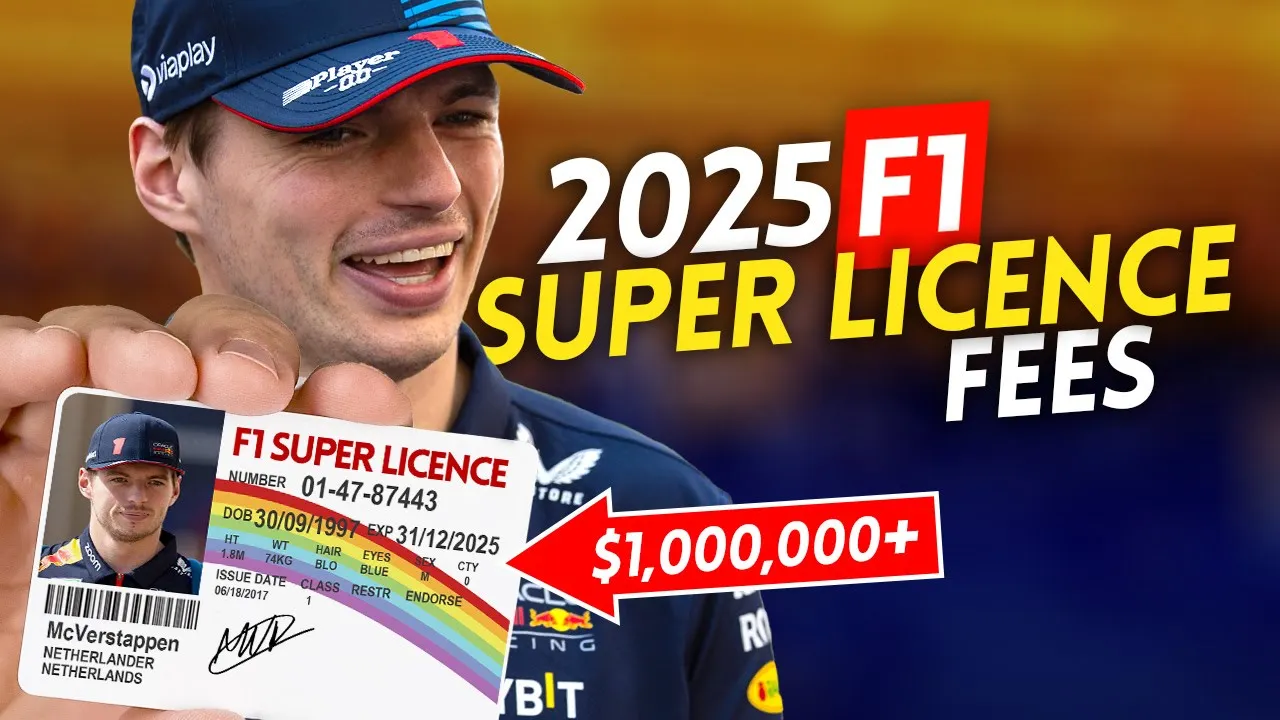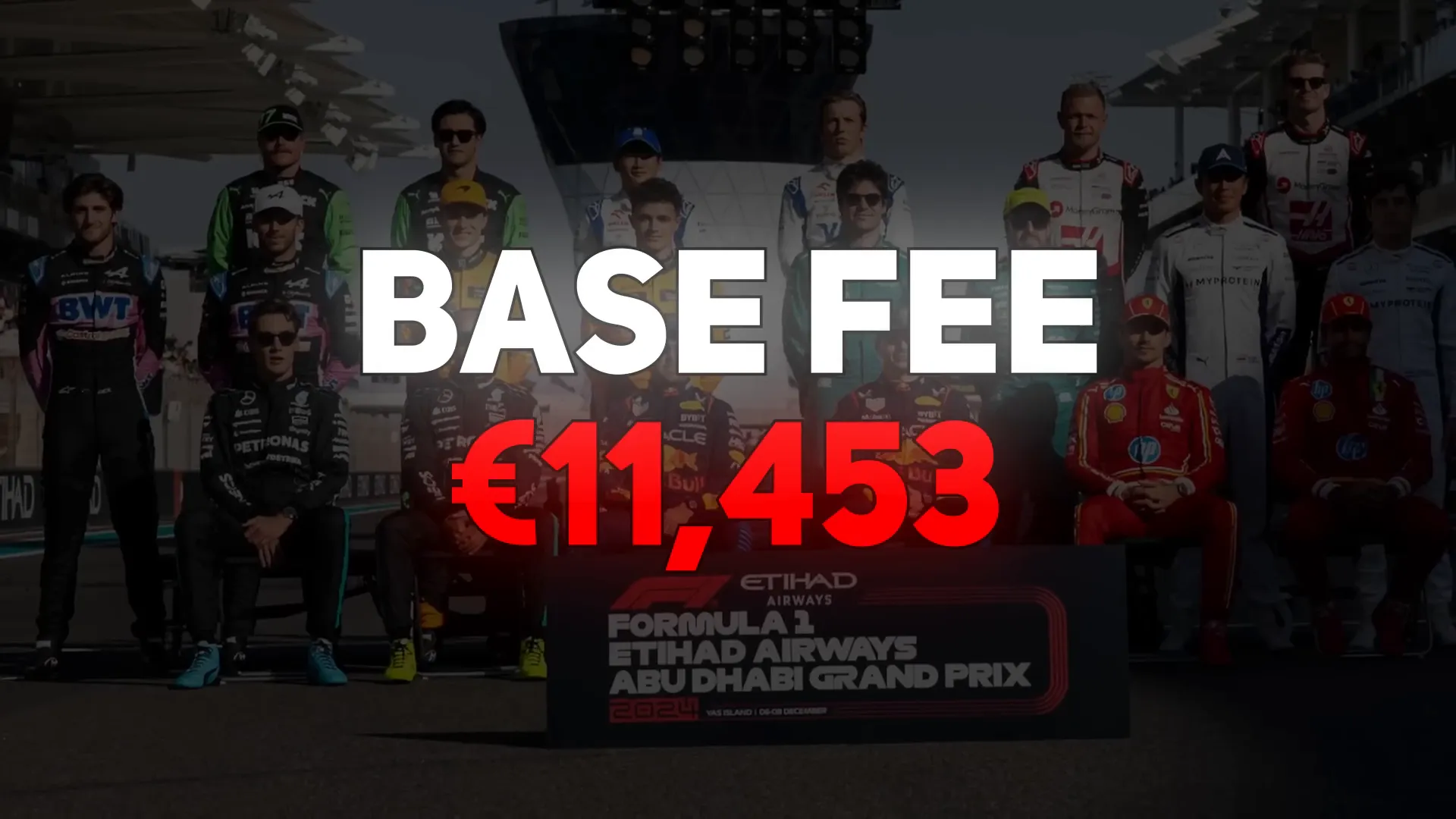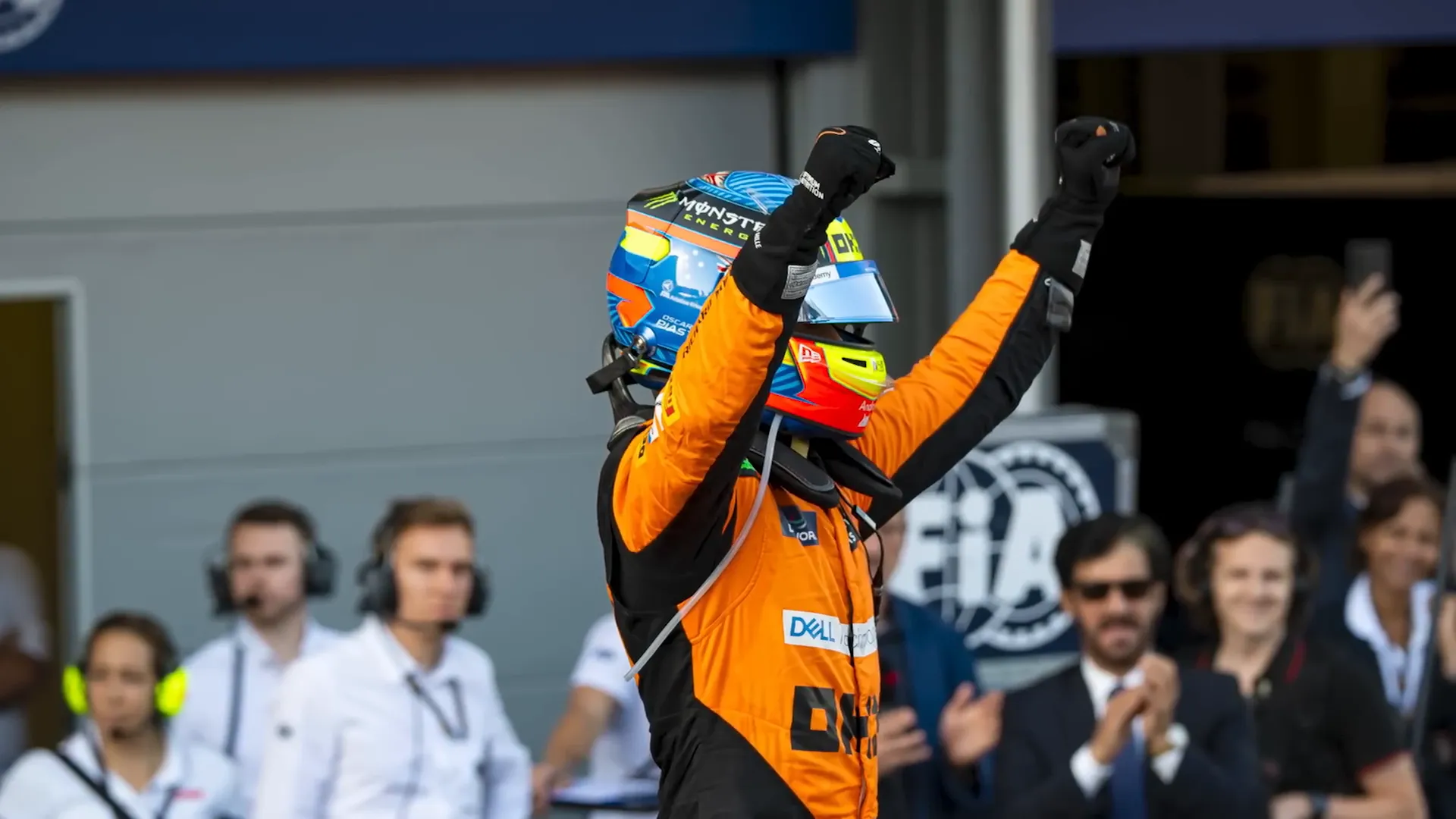[vc_row type=”full_width_background” bg_color=”#ffffff” scene_position=”center” text_color=”dark” text_align=”left” top_padding=”40″ bottom_padding=”40″ class=”behind-the-scenes” overlay_strength=”0.3″][vc_column column_padding=”no-extra-padding” column_padding_position=”all” background_color_opacity=”1″ background_hover_color_opacity=”1″ width=”1/1″][vc_row_inner class=”bts-top” bottom_padding=”20″][vc_column_inner column_padding=”no-extra-padding” column_padding_position=”all” background_color_opacity=”1″ width=”1/1″][vc_column_text el_class=”f1-subheading”]
IMAGES LIVE FROM THE TRACK
From Thursday to Sunday, images uploaded minutes after being taken.
[/vc_column_text][/vc_column_inner][/vc_row_inner][vc_row_inner bottom_padding=”20″ el_id=”kymillman”][vc_column_inner column_padding=”no-extra-padding” column_padding_position=”all” background_color_opacity=”1″ width=”1/1″][vc_raw_html el_class=”kymillman”]JTNDZGl2JTIwY2xhc3MlM0QlMjJmMS1ldmVudHMtY2Fyb3VzZWwlMjIlMjBpZCUzRCUyMmYxLWJveC1jb250YWluZXIlMjIlM0UlMEElMEElM0NkaXYlMjBjbGFzcyUzRCUyMmYxLWJveCUyMiUyMHN0eWxlJTNEJTIyYmFja2dyb3VuZCUzQSUyMzA3MDcwNiUyMHVybCUyOCUyRndwLWNvbnRlbnQlMkZ1cGxvYWRzJTJGMjAyMSUyRjA2JTJGZnJlbmNoLWdwLTIwMjEtdGh1bWJuYWlsLmpwZyUyOSUyMGNlbnRlciUyMGJvdHRvbSUyMG5vLXJlcGVhdCUzQiUyMGJhY2tncm91bmQtc2l6ZSUzQSUyMGNvdmVyJTIwJTIxaW1wb3J0YW50JTNCJTIyJTNFJTBBJTNDZGl2JTIwY2xhc3MlM0QlMjJmMS10aXRsZSUyMiUzRSUwQSUzQ2RpdiUyMGNsYXNzJTNEJTIyZmxhZyUyMGZsYWctZnIlMjIlMjBzdHlsZSUzRCUyMmJhY2tncm91bmQtaW1hZ2UlM0ElMjB1cmwlMjglMkZ3cC1jb250ZW50JTJGdXBsb2FkcyUyRjIwMTclMkYwMyUyRmZsYWdzMi5wbmclMjklM0IlMjIlM0UlM0MlMkZkaXYlM0UlM0NiciUzRSUwQUZyZW5jaCUyMEdyYW5kJTIwUHJpeCUyMDIwMjIlM0NiciUzRSUwQSUzQ3NtYWxsJTNFMjFzdCUyMC0lMjAyNHRoJTIwSnVseSUyQyUyMDIwMjIlM0MlMkZzbWFsbCUzRSUwQSUzQ3VsJTNFJTBBJTNDbGklM0UlM0NhJTIwaHJlZiUzRCUyMmh0dHBzJTNBJTJGJTJGd3d3LnByb3N0YXJwaWNzLmNvbSUyRmZyZW5jaC1ncmFuZC1wcml4LTIwMjItZGF5LTElMjIlMjB0YXJnZXQlM0QlMjJfYmxhbmslMjIlM0VEYXklMjAxJTNDJTJGYSUzRSUzQyUyRmxpJTNFJTBBJTNDbGklM0UlM0NhJTIwaHJlZiUzRCUyMmh0dHBzJTNBJTJGJTJGd3d3LnByb3N0YXJwaWNzLmNvbSUyRmZyZW5jaC1ncmFuZC1wcml4LTIwMjItZGF5LTIlMjIlMjB0YXJnZXQlM0QlMjJfYmxhbmslMjIlM0VEYXklMjAyJTNDJTJGYSUzRSUzQyUyRmxpJTNFJTBBJTNDbGklM0UlM0NhJTIwaHJlZiUzRCUyMmh0dHBzJTNBJTJGJTJGd3d3LnByb3N0YXJwaWNzLmNvbSUyRmZyZW5jaC1ncmFuZC1wcml4LTIwMjItZGF5LTMlMjIlMjB0YXJnZXQlM0QlMjJfYmxhbmslMjIlM0VEYXklMjAzJTNDJTJGYSUzRSUzQyUyRmxpJTNFJTBBJTNDbGklM0UlM0NhJTIwaHJlZiUzRCUyMmh0dHBzJTNBJTJGJTJGd3d3LnByb3N0YXJwaWNzLmNvbSUyRmZyZW5jaC1ncmFuZC1wcml4LTIwMjItZGF5LTQlMjIlMjB0YXJnZXQlM0QlMjJfYmxhbmslMjIlM0VEYXklMjA0JTNDJTJGYSUzRSUzQyUyRmxpJTNFJTBBJTNDJTJGdWwlM0UlMEElM0MlMkZkaXYlM0UlMEElM0MlMkZkaXYlM0UlMEElMEElM0NkaXYlMjBjbGFzcyUzRCUyMmYxLWJveCUyMiUyMHN0eWxlJTNEJTIyYmFja2dyb3VuZCUzQSUyMHVybCUyOCUyRndwLWNvbnRlbnQlMkZ1cGxvYWRzJTJGMjAyMiUyRjA3JTJGYXVzdHJpYW4tZ3AtMjAyMi10aHVtYm5haWwuanBnJTI5JTIwY2VudGVyJTIwYm90dG9tJTIwbm8tcmVwZWF0JTNCJTIwYmFja2dyb3VuZC1zaXplJTNBJTIwY292ZXIlMjAlMjFpbXBvcnRhbnQlM0IlMjIlM0UlMEElM0NkaXYlMjBjbGFzcyUzRCUyMmYxLXRpdGxlJTIyJTNFJTBBJTNDZGl2JTIwY2xhc3MlM0QlMjJmbGFnJTIwZmxhZy1hdCUyMiUyMHN0eWxlJTNEJTIyYmFja2dyb3VuZC1pbWFnZSUzQSUyMHVybCUyOCUyRndwLWNvbnRlbnQlMkZ1cGxvYWRzJTJGMjAxNyUyRjAzJTJGZmxhZ3MyLnBuZyUyOSUzQiUyMiUzRSUzQyUyRmRpdiUzRSUzQ2JyJTNFJTBBQXVzdHJpYW4lMjBHcmFuZCUyMFByaXglMjAyMDIyJTNDYnIlM0UlMEElM0NzbWFsbCUzRTd0aCUyMC0lMjAxMHRoJTIwSnVseSUyMCUyQyUyMDIwMjIlM0MlMkZzbWFsbCUzRSUwQSUzQ3VsJTNFJTBBJTNDbGklM0UlM0NhJTIwaHJlZiUzRCUyMmh0dHBzJTNBJTJGJTJGd3d3LnByb3N0YXJwaWNzLmNvbSUyRmF1c3RyaWFuLWdyYW5kLXByaXgtMjAyMi1kYXktMSUyMiUyMHRhcmdldCUzRCUyMl9ibGFuayUyMiUzRURheSUyMDElM0MlMkZhJTNFJTNDJTJGbGklM0UlMEElM0NsaSUzRSUzQ2ElMjBocmVmJTNEJTIyaHR0cHMlM0ElMkYlMkZ3d3cucHJvc3RhcnBpY3MuY29tJTJGYXVzdHJpYW4tZ3JhbmQtcHJpeC0yMDIyLWRheS0yJTIyJTIwdGFyZ2V0JTNEJTIyX2JsYW5rJTIyJTNFRGF5JTIwMiUzQyUyRmElM0UlM0MlMkZsaSUzRSUwQSUzQ2xpJTNFJTNDYSUyMGhyZWYlM0QlMjJodHRwcyUzQSUyRiUyRnd3dy5wcm9zdGFycGljcy5jb20lMkZhdXN0cmlhbi1ncmFuZC1wcml4LTIwMjItZGF5LTMlMjIlMjB0YXJnZXQlM0QlMjJfYmxhbmslMjIlM0VEYXklMjAzJTNDJTJGYSUzRSUzQyUyRmxpJTNFJTBBJTNDbGklM0UlM0NhJTIwaHJlZiUzRCUyMmh0dHBzJTNBJTJGJTJGd3d3LnByb3N0YXJwaWNzLmNvbSUyRmF1c3RyaWFuLWdyYW5kLXByaXgtMjAyMi1kYXktNCUyMiUyMHRhcmdldCUzRCUyMl9ibGFuayUyMiUzRURheSUyMDQlM0MlMkZhJTNFJTNDJTJGbGklM0UlMEElM0MlMkZ1bCUzRSUwQSUzQyUyRmRpdiUzRSUwQSUzQyUyRmRpdiUzRSUwQSUwQSUzQ2RpdiUyMGNsYXNzJTNEJTIyZjEtYm94JTIyJTIwc3R5bGUlM0QlMjJiYWNrZ3JvdW5kJTNBJTIwdXJsJTI4JTJGd3AtY29udGVudCUyRnVwbG9hZHMlMkYyMDIyJTJGMDclMkZicml0aXNoLWdwLTIwMjItdGh1bWJuYWlsLmpwZyUyOSUyMGNlbnRlciUyMHRvcCUyMG5vLXJlcGVhdCUzQiUyMGJhY2tncm91bmQtc2l6ZSUzQSUyMGNvdmVyJTIwJTIxaW1wb3J0YW50JTNCJTIyJTNFJTBBJTNDZGl2JTIwY2xhc3MlM0QlMjJmMS10aXRsZSUyMiUzRSUwQSUzQ2RpdiUyMGNsYXNzJTNEJTIyZmxhZyUyMGZsYWctZ2IlMjIlMjBzdHlsZSUzRCUyMmJhY2tncm91bmQtaW1hZ2UlM0ElMjB1cmwlMjglMkZ3cC1jb250ZW50JTJGdXBsb2FkcyUyRjIwMTclMkYwMyUyRmZsYWdzMi5wbmclMjklM0IlMjIlM0UlM0MlMkZkaXYlM0UlM0NiciUzRSUwQUJyaXRpc2glMjBHcmFuZCUyMFByaXglMjAyMDIyJTNDYnIlM0UlMEElM0NzbWFsbCUzRTMwdGglMjBKdW5lJTIwLSUyMDNyZCUyMEp1bHklMkMlMjAyMDIyJTNDJTJGc21hbGwlM0UlMEElM0N1bCUzRSUwQSUzQ2xpJTNFJTNDYSUyMGhyZWYlM0QlMjJodHRwcyUzQSUyRiUyRnd3dy5wcm9zdGFycGljcy5jb20lMkZicml0aXNoLWdyYW5kLXByaXgtMjAyMi1kYXktMSUyMiUyMHRhcmdldCUzRCUyMl9ibGFuayUyMiUzRURheSUyMDElM0MlMkZhJTNFJTNDJTJGbGklM0UlMEElM0NsaSUzRSUzQ2ElMjBocmVmJTNEJTIyaHR0cHMlM0ElMkYlMkZ3d3cucHJvc3RhcnBpY3MuY29tJTJGYnJpdGlzaC1ncmFuZC1wcml4LTIwMjItZGF5LTIlMjIlMjB0YXJnZXQlM0QlMjJfYmxhbmslMjIlM0VEYXklMjAyJTNDJTJGYSUzRSUzQyUyRmxpJTNFJTBBJTNDbGklM0UlM0NhJTIwaHJlZiUzRCUyMmh0dHBzJTNBJTJGJTJGd3d3LnByb3N0YXJwaWNzLmNvbSUyRmJyaXRpc2gtZ3JhbmQtcHJpeC0yMDIyLWRheS0zJTIyJTIwdGFyZ2V0JTNEJTIyX2JsYW5rJTIyJTNFRGF5JTIwMyUzQyUyRmElM0UlM0MlMkZsaSUzRSUwQSUzQ2xpJTNFJTNDYSUyMGhyZWYlM0QlMjJodHRwcyUzQSUyRiUyRnd3dy5wcm9zdGFycGljcy5jb20lMkZicml0aXNoLWdyYW5kLXByaXgtMjAyMi1kYXktNCUyMiUyMHRhcmdldCUzRCUyMl9ibGFuayUyMiUzRURheSUyMDQlM0MlMkZhJTNFJTNDJTJGbGklM0UlMEElM0MlMkZ1bCUzRSUwQSUzQyUyRmRpdiUzRSUwQSUzQyUyRmRpdiUzRSUwQSUwQSUzQ2RpdiUyMGNsYXNzJTNEJTIyZjEtYm94JTIyJTIwc3R5bGUlM0QlMjJiYWNrZ3JvdW5kJTNBJTIwdXJsJTI4JTJGd3AtY29udGVudCUyRnVwbG9hZHMlMkYyMDIyJTJGMDYlMkZjYW5hZGlhbi1ncC0yMDIyLXRodW1ibmFpbC5qcGclMjklMjBjZW50ZXIlMjBib3R0b20lMjBuby1yZXBlYXQlM0IlMjBiYWNrZ3JvdW5kLXNpemUlM0ElMjBjb3ZlciUyMCUyMWltcG9ydGFudCUzQiUyMiUzRSUwQSUzQ2RpdiUyMGNsYXNzJTNEJTIyZjEtdGl0bGUlMjIlM0UlMEElM0NkaXYlMjBjbGFzcyUzRCUyMmZsYWclMjBmbGFnLWNhJTIyJTIwc3R5bGUlM0QlMjJiYWNrZ3JvdW5kLWltYWdlJTNBJTIwdXJsJTI4JTJGd3AtY29udGVudCUyRnVwbG9hZHMlMkYyMDE3JTJGMDMlMkZmbGFnczIucG5nJTI5JTNCJTIyJTNFJTNDJTJGZGl2JTNFJTNDYnIlM0UlMEFDYW5hZGlhbiUyMEdyYW5kJTIwUHJpeCUyMDIwMjIlM0NiciUzRSUwQSUzQ3NtYWxsJTNFMTZ0aCUyMC0lMjAxOXRoJTIwSnVuZSUyQyUyMDIwMjIlM0MlMkZzbWFsbCUzRSUwQSUzQ3VsJTNFJTBBJTNDbGklM0UlM0NhJTIwaHJlZiUzRCUyMmh0dHBzJTNBJTJGJTJGd3d3LnByb3N0YXJwaWNzLmNvbSUyRmNhbmFkaWFuLWdyYW5kLXByaXgtMjAyMi1kYXktMSUyMiUyMHRhcmdldCUzRCUyMl9ibGFuayUyMiUzRURheSUyMDElM0MlMkZhJTNFJTNDJTJGbGklM0UlMEElM0NsaSUzRSUzQ2ElMjBocmVmJTNEJTIyaHR0cHMlM0ElMkYlMkZ3d3cucHJvc3RhcnBpY3MuY29tJTJGY2FuYWRpYW4tZ3JhbmQtcHJpeC0yMDIyLWRheS0yJTIyJTIwdGFyZ2V0JTNEJTIyX2JsYW5rJTIyJTNFRGF5JTIwMiUzQyUyRmElM0UlM0MlMkZsaSUzRSUwQSUzQ2xpJTNFJTNDYSUyMGhyZWYlM0QlMjJodHRwcyUzQSUyRiUyRnd3dy5wcm9zdGFycGljcy5jb20lMkZjYW5hZGlhbi1ncmFuZC1wcml4LTIwMjItZGF5LTMlMjIlMjB0YXJnZXQlM0QlMjJfYmxhbmslMjIlM0VEYXklMjAzJTNDJTJGYSUzRSUzQyUyRmxpJTNFJTBBJTNDbGklM0UlM0NhJTIwaHJlZiUzRCUyMmh0dHBzJTNBJTJGJTJGd3d3LnByb3N0YXJwaWNzLmNvbSUyRmNhbmFkaWFuLWdyYW5kLXByaXgtMjAyMi1kYXktNCUyMiUyMHRhcmdldCUzRCUyMl9ibGFuayUyMiUzRURheSUyMDQlM0MlMkZhJTNFJTNDJTJGbGklM0UlMEElM0MlMkZ1bCUzRSUwQSUzQyUyRmRpdiUzRSUwQSUzQyUyRmRpdiUzRSUwQSUwQSUzQ2RpdiUyMGNsYXNzJTNEJTIyZjEtYm94JTIyJTIwc3R5bGUlM0QlMjJiYWNrZ3JvdW5kJTNBJTIwdXJsJTI4JTJGd3AtY29udGVudCUyRnVwbG9hZHMlMkYyMDIyJTJGMDYlMkZhemVyYmFpamFuLWdwLTIwMjItdGh1bWJuYWlsLmpwZyUyOSUyMGJvdHRvbSUyMG5vLXJlcGVhdCUzQiUyMGJhY2tncm91bmQtc2l6ZSUzQSUyMGNvdmVyJTIwJTIxaW1wb3J0YW50JTNCJTIyJTNFJTBBJTNDZGl2JTIwY2xhc3MlM0QlMjJmMS10aXRsZSUyMiUzRSUwQSUzQ2RpdiUyMGNsYXNzJTNEJTIyZmxhZyUyMGZsYWctYXolMjIlMjBzdHlsZSUzRCUyMmJhY2tncm91bmQtaW1hZ2UlM0ElMjB1cmwlMjglMkZ3cC1jb250ZW50JTJGdXBsb2FkcyUyRjIwMTclMkYwMyUyRmZsYWdzMi5wbmclMjklM0IlMjIlM0UlM0MlMkZkaXYlM0UlM0NiciUzRSUwQUF6ZXJiYWlqYW4lMjBHcmFuZCUyMFByaXglMjAyMDIyJTNDYnIlM0UlMEElM0NzbWFsbCUzRTl0aCUyMC0lMjAxMnRoJTIwSnVuZSUyQyUyMDIwMjIlM0MlMkZzbWFsbCUzRSUwQSUzQ3VsJTNFJTBBJTNDbGklM0UlM0NhJTIwaHJlZiUzRCUyMmh0dHBzJTNBJTJGJTJGd3d3LnByb3N0YXJwaWNzLmNvbSUyRmF6ZXJiYWlqYW4tZ3JhbmQtcHJpeC0yMDIyLWRheS0xJTIyJTIwdGFyZ2V0JTNEJTIyX2JsYW5rJTIyJTNFRGF5JTIwMSUzQyUyRmElM0UlM0MlMkZsaSUzRSUwQSUzQ2xpJTNFJTNDYSUyMGhyZWYlM0QlMjJodHRwcyUzQSUyRiUyRnd3dy5wcm9zdGFycGljcy5jb20lMkZhemVyYmFpamFuLWdyYW5kLXByaXgtMjAyMi1kYXktMiUyMiUyMHRhcmdldCUzRCUyMl9ibGFuayUyMiUzRURheSUyMDIlM0MlMkZhJTNFJTNDJTJGbGklM0UlMEElM0NsaSUzRSUzQ2ElMjBocmVmJTNEJTIyaHR0cHMlM0ElMkYlMkZ3d3cucHJvc3RhcnBpY3MuY29tJTJGYXplcmJhaWphbi1ncmFuZC1wcml4LTIwMjItZGF5LTMlMjIlMjB0YXJnZXQlM0QlMjJfYmxhbmslMjIlM0VEYXklMjAzJTNDJTJGYSUzRSUzQyUyRmxpJTNFJTBBJTNDbGklM0UlM0NhJTIwaHJlZiUzRCUyMmh0dHBzJTNBJTJGJTJGd3d3LnByb3N0YXJwaWNzLmNvbSUyRmF6ZXJiYWlqYW4tZ3JhbmQtcHJpeC0yMDIyLWRheS00JTIyJTIwdGFyZ2V0JTNEJTIyX2JsYW5rJTIyJTNFRGF5JTIwNCUzQyUyRmElM0UlM0MlMkZsaSUzRSUwQSUzQyUyRnVsJTNFJTBBJTNDJTJGZGl2JTNFJTBBJTNDJTJGZGl2JTNFJTBBJTBBJTNDZGl2JTIwY2xhc3MlM0QlMjJmMS1ib3glMjBmaXZlLWRheS1ib3glMjIlMjBzdHlsZSUzRCUyMmJhY2tncm91bmQlM0ElMjMwNzA3MDYlMjB1cmwlMjglMkZ3cC1jb250ZW50JTJGdXBsb2FkcyUyRjIwMjIlMkYwNSUyRm1vbmFjby1ncC0yMDIyLXRodW1ibmFpbC5qcGclMjklMjBsZWZ0JTIwYm90dG9tJTIwbm8tcmVwZWF0JTNCJTIwYmFja2dyb3VuZC1zaXplJTNBJTIwY292ZXIlMjAlMjFpbXBvcnRhbnQlM0IlMjIlM0UlMEElM0NkaXYlMjBjbGFzcyUzRCUyMmYxLXRpdGxlJTIyJTNFJTBBJTNDZGl2JTIwY2xhc3MlM0QlMjJmbGFnJTIwZmxhZy1tYyUyMiUyMHN0eWxlJTNEJTIyYmFja2dyb3VuZC1pbWFnZSUzQSUyMHVybCUyOCUyRndwLWNvbnRlbnQlMkZ1cGxvYWRzJTJGMjAxNyUyRjAzJTJGZmxhZ3MyLnBuZyUyOSUzQiUyMiUzRSUzQyUyRmRpdiUzRSUzQ2JyJTNFJTBBTW9uYWNvJTIwR3JhbmQlMjBQcml4JTIwMjAyMiUzQ2JyJTNFJTBBJTNDc21hbGwlM0UyNnRoJTIwLSUyMDI5dGglMjBNYXklMkMlMjAyMDIyJTNDJTJGc21hbGwlM0UlMEElM0N1bCUzRSUwQSUzQ2xpJTNFJTNDYSUyMGhyZWYlM0QlMjJodHRwcyUzQSUyRiUyRnd3dy5wcm9zdGFycGljcy5jb20lMkZtb25hY28tZ3JhbmQtcHJpeC0yMDIyLWRheS0xJTIyJTIwdGFyZ2V0JTNEJTIyX2JsYW5rJTIyJTNFRGF5JTIwMSUzQyUyRmElM0UlM0MlMkZsaSUzRSUwQSUzQ2xpJTNFJTNDYSUyMGhyZWYlM0QlMjJodHRwcyUzQSUyRiUyRnd3dy5wcm9zdGFycGljcy5jb20lMkZtb25hY28tZ3JhbmQtcHJpeC0yMDIyLWRheS0yJTIyJTIwdGFyZ2V0JTNEJTIyX2JsYW5rJTIyJTNFRGF5JTIwMiUzQyUyRmElM0UlM0MlMkZsaSUzRSUwQSUzQ2xpJTNFJTNDYSUyMGhyZWYlM0QlMjJodHRwcyUzQSUyRiUyRnd3dy5wcm9zdGFycGljcy5jb20lMkZtb25hY28tZ3JhbmQtcHJpeC0yMDIyLWRheS0zJTIyJTIwdGFyZ2V0JTNEJTIyX2JsYW5rJTIyJTNFRGF5JTIwMyUzQyUyRmElM0UlM0MlMkZsaSUzRSUwQSUzQ2xpJTNFJTNDYSUyMGhyZWYlM0QlMjJodHRwcyUzQSUyRiUyRnd3dy5wcm9zdGFycGljcy5jb20lMkZtb25hY28tZ3JhbmQtcHJpeC0yMDIyLWRheS00JTIyJTIwdGFyZ2V0JTNEJTIyX2JsYW5rJTIyJTNFRGF5JTIwNCUzQyUyRmElM0UlM0MlMkZsaSUzRSUwQSUzQyUyRnVsJTNFJTBBJTNDJTJGZGl2JTNFJTBBJTNDJTJGZGl2JTNFJTBBJTBBJTNDZGl2JTIwY2xhc3MlM0QlMjJmMS1ib3glMjIlMjBzdHlsZSUzRCUyMmJhY2tncm91bmQlM0ElMjB1cmwlMjglMkZ3cC1jb250ZW50JTJGdXBsb2FkcyUyRjIwMjIlMkYwNSUyRnNwYW5pc2gtZ3JhbmQtcHJpeC10aHVtYm5haWwtMjAyMi5qcGclMjklMjAwcHglMjAwcHglMjBuby1yZXBlYXQlM0IlMjBiYWNrZ3JvdW5kLXNpemUlM0ElMjBjb3ZlciUyMCUyMWltcG9ydGFudCUzQiUyMiUzRSUwQSUzQ2RpdiUyMGNsYXNzJTNEJTIyZjEtdGl0bGUlMjIlM0UlMEElM0NkaXYlMjBjbGFzcyUzRCUyMmZsYWclMjBmbGFnLWVzJTIyJTIwc3R5bGUlM0QlMjJiYWNrZ3JvdW5kLWltYWdlJTNBJTIwdXJsJTI4JTJGd3AtY29udGVudCUyRnVwbG9hZHMlMkYyMDE3JTJGMDMlMkZmbGFnczIucG5nJTI5JTNCJTIyJTNFJTNDJTJGZGl2JTNFJTNDYnIlM0UlMEFTcGFuaXNoJTIwR3JhbmQlMjBQcml4JTIwMjAyMiUzQ2JyJTNFJTBBJTNDc21hbGwlM0UxOXRoJTIwLSUyMDIybmQlMjBNYXklMkMlMjAyMDIyJTNDJTJGc21hbGwlM0UlMEElM0N1bCUzRSUwQSUzQ2xpJTNFJTNDYSUyMGhyZWYlM0QlMjJodHRwcyUzQSUyRiUyRnd3dy5wcm9zdGFycGljcy5jb20lMkZzcGFuaXNoLWdyYW5kLXByaXgtMjAyMi1kYXktMSUyMiUyMHRhcmdldCUzRCUyMl9ibGFuayUyMiUzRURheSUyMDElM0MlMkZhJTNFJTNDJTJGbGklM0UlMEElM0NsaSUzRSUzQ2ElMjBocmVmJTNEJTIyaHR0cHMlM0ElMkYlMkZ3d3cucHJvc3RhcnBpY3MuY29tJTJGc3BhbmlzaC1ncmFuZC1wcml4LTIwMjItZGF5LTIlMjIlMjB0YXJnZXQlM0QlMjJfYmxhbmslMjIlM0VEYXklMjAyJTNDJTJGYSUzRSUzQyUyRmxpJTNFJTBBJTNDbGklM0UlM0NhJTIwaHJlZiUzRCUyMmh0dHBzJTNBJTJGJTJGd3d3LnByb3N0YXJwaWNzLmNvbSUyRnNwYW5pc2gtZ3JhbmQtcHJpeC0yMDIyLWRheS0zJTIyJTIwdGFyZ2V0JTNEJTIyX2JsYW5rJTIyJTNFRGF5JTIwMyUzQyUyRmElM0UlM0MlMkZsaSUzRSUwQSUzQ2xpJTNFJTNDYSUyMGhyZWYlM0QlMjJodHRwcyUzQSUyRiUyRnd3dy5wcm9zdGFycGljcy5jb20lMkZzcGFuaXNoLWdyYW5kLXByaXgtMjAyMi1kYXktNCUyMiUyMHRhcmdldCUzRCUyMl9ibGFuayUyMiUzRURheSUyMDQlM0MlMkZhJTNFJTNDJTJGbGklM0UlMEElM0MlMkZ1bCUzRSUwQSUzQyUyRmRpdiUzRSUwQSUzQyUyRmRpdiUzRSUwQSUwQSUzQ2RpdiUyMGNsYXNzJTNEJTIyZjEtYm94JTIyJTIwc3R5bGUlM0QlMjJiYWNrZ3JvdW5kJTNBJTIwdXJsJTI4JTJGd3AtY29udGVudCUyRnVwbG9hZHMlMkYyMDIyJTJGMDUlMkZpbmR5Y2FyLXRodW1ibmFpbC5qcGclMjklMjAwcHglMjAwcHglMjBuby1yZXBlYXQlM0IlMjBiYWNrZ3JvdW5kLXNpemUlM0ElMjBjb3ZlciUyMCUyMWltcG9ydGFudCUzQiUyMiUzRSUwQSUzQ2RpdiUyMGNsYXNzJTNEJTIyZjEtdGl0bGUlMjIlM0UlMEElM0NkaXYlMjBjbGFzcyUzRCUyMmZsYWclMjBmbGFnLXVzJTIyJTIwc3R5bGUlM0QlMjJiYWNrZ3JvdW5kLWltYWdlJTNBJTIwdXJsJTI4JTJGd3AtY29udGVudCUyRnVwbG9hZHMlMkYyMDE3JTJGMDMlMkZmbGFnczIucG5nJTI5JTNCJTIyJTNFJTNDJTJGZGl2JTNFJTNDYnIlM0UlMEFJbmR5Y2FyJTIwMjAyMiUzQ2JyJTNFJTBBJTNDc21hbGwlM0UxMnRoJTIwLSUyMDE0dGglMjBNYXklMkMlMjAyMDIyJTNDJTJGc21hbGwlM0UlMEElM0N1bCUzRSUwQSUzQ2xpJTNFJTNDYSUyMGhyZWYlM0QlMjJodHRwcyUzQSUyRiUyRnd3dy5wcm9zdGFycGljcy5jb20lMkZpbmR5Y2FyLWRheS0xJTIyJTIwdGFyZ2V0JTNEJTIyX2JsYW5rJTIyJTNFRGF5JTIwMSUzQyUyRmElM0UlM0MlMkZsaSUzRSUwQSUzQ2xpJTNFJTNDYSUyMGhyZWYlM0QlMjJodHRwcyUzQSUyRiUyRnd3dy5wcm9zdGFycGljcy5jb20lMkZpbmR5Y2FyLWRheS0yJTIyJTIwdGFyZ2V0JTNEJTIyX2JsYW5rJTIyJTNFRGF5JTIwMiUzQyUyRmElM0UlM0MlMkZsaSUzRSUwQSUzQ2xpJTNFJTNDYSUyMGhyZWYlM0QlMjJodHRwcyUzQSUyRiUyRnd3dy5wcm9zdGFycGljcy5jb20lMkZpbmR5Y2FyLWRheS0yJTIyJTIwdGFyZ2V0JTNEJTIyX2JsYW5rJTIyJTNFRGF5JTIwMyUzQyUyRmElM0UlM0MlMkZsaSUzRSUwQSUzQyUyRnVsJTNFJTBBJTNDJTJGZGl2JTNFJTBBJTNDJTJGZGl2JTNFJTBBJTBBJTNDZGl2JTIwY2xhc3MlM0QlMjJmMS1ib3glMjIlMjBzdHlsZSUzRCUyMmJhY2tncm91bmQlM0ElMjMwNzA3MDYlMjB1cmwlMjglMkZ3cC1jb250ZW50JTJGdXBsb2FkcyUyRjIwMjIlMkYwNSUyRm1pYW1pLWdwLTIwMjItdGh1bWJuYWlsLmpwZyUyOSUyMGNlbnRlciUyMHJpZ2h0JTIwbm8tcmVwZWF0JTNCJTIwYmFja2dyb3VuZC1zaXplJTNBJTIwY292ZXIlMjAlMjFpbXBvcnRhbnQlM0IlMjIlM0UlMEElM0NkaXYlMjBjbGFzcyUzRCUyMmYxLXRpdGxlJTIyJTNFJTBBJTNDZGl2JTIwY2xhc3MlM0QlMjJmbGFnJTIwZmxhZy11cyUyMiUyMHN0eWxlJTNEJTIyYmFja2dyb3VuZC1pbWFnZSUzQSUyMHVybCUyOCUyRndwLWNvbnRlbnQlMkZ1cGxvYWRzJTJGMjAxNyUyRjAzJTJGZmxhZ3MyLnBuZyUyOSUzQiUyMiUzRSUzQyUyRmRpdiUzRSUzQ2JyJTNFJTBBTWlhbWklMjBHcmFuZCUyMFByaXglMjAyMDIyJTNDYnIlM0UlMEElM0NzbWFsbCUzRTV0aCUyMC0lMjA4dGglMjBNYXklMkMlMjAyMDIyJTNDJTJGc21hbGwlM0UlMEElM0N1bCUzRSUwQSUzQ2xpJTNFJTNDYSUyMGhyZWYlM0QlMjJodHRwcyUzQSUyRiUyRnd3dy5wcm9zdGFycGljcy5jb20lMkZtaWFtaS1ncmFuZC1wcml4LTIwMjItZGF5LTElMjIlMjB0YXJnZXQlM0QlMjJfYmxhbmslMjIlM0VEYXklMjAxJTNDJTJGYSUzRSUzQyUyRmxpJTNFJTBBJTNDbGklM0UlM0NhJTIwaHJlZiUzRCUyMmh0dHBzJTNBJTJGJTJGd3d3LnByb3N0YXJwaWNzLmNvbSUyRm1pYW1pLWdyYW5kLXByaXgtMjAyMi1kYXktMiUyMiUyMHRhcmdldCUzRCUyMl9ibGFuayUyMiUzRURheSUyMDIlM0MlMkZhJTNFJTNDJTJGbGklM0UlMEElM0NsaSUzRSUzQ2ElMjBocmVmJTNEJTIyaHR0cHMlM0ElMkYlMkZ3d3cucHJvc3RhcnBpY3MuY29tJTJGbWlhbWktZ3JhbmQtcHJpeC0yMDIyLWRheS0zJTIyJTIwdGFyZ2V0JTNEJTIyX2JsYW5rJTIyJTNFRGF5JTIwMyUzQyUyRmElM0UlM0MlMkZsaSUzRSUwQSUzQ2xpJTNFJTNDYSUyMGhyZWYlM0QlMjJodHRwcyUzQSUyRiUyRnd3dy5wcm9zdGFycGljcy5jb20lMkZtaWFtaS1ncmFuZC1wcml4LTIwMjItZGF5LTQlMjIlMjB0YXJnZXQlM0QlMjJfYmxhbmslMjIlM0VEYXklMjA0JTNDJTJGYSUzRSUzQyUyRmxpJTNFJTBBJTNDJTJGdWwlM0UlMEElM0MlMkZkaXYlM0UlMEElM0MlMkZkaXYlM0UlMEElMEElM0NkaXYlMjBjbGFzcyUzRCUyMmYxLWJveCUyMiUyMGlkJTNEJTIyZW1pbGlhLXJvbWFnbmEtYm94JTIyJTIwc3R5bGUlM0QlMjJiYWNrZ3JvdW5kJTNBJTIzMDcwNzA2JTIwdXJsJTI4JTJGd3AtY29udGVudCUyRnVwbG9hZHMlMkYyMDIyJTJGMDQlMkZlbWlsaWEtcm9tYWduYS1ncC0yMDIyLXRodW1ibmFpbC5qcGclMjklMjBjZW50ZXIlMjBib3R0b20lMjBuby1yZXBlYXQlM0IlMjBiYWNrZ3JvdW5kLXNpemUlM0ElMjBjb3ZlciUyMCUyMWltcG9ydGFudCUzQiUyMiUzRSUwQSUzQ2RpdiUyMGNsYXNzJTNEJTIyZjEtdGl0bGUlMjIlM0UlMEElM0NkaXYlMjBjbGFzcyUzRCUyMmZsYWclMjBmbGFnLWl0JTIyJTIwc3R5bGUlM0QlMjJiYWNrZ3JvdW5kLWltYWdlJTNBJTIwdXJsJTI4JTJGd3AtY29udGVudCUyRnVwbG9hZHMlMkYyMDE3JTJGMDMlMkZmbGFnczIucG5nJTI5JTNCJTIyJTNFJTNDJTJGZGl2JTNFJTNDYnIlM0UlMEElM0NzcGFuJTNFRW1pbGlhJTIwUm9tYWduYSUyMEdyYW5kJTIwUHJpeCUyMDIwMjIlM0MlMkZzcGFuJTNFJTNDYnIlM0UlMEElM0NzbWFsbCUzRTIxc3QlMjAtJTIwMjR0aCUyMEFwcmlsJTJDJTIwMjAyMiUzQyUyRnNtYWxsJTNFJTBBJTNDdWwlM0UlMEElM0NsaSUzRSUzQ2ElMjBocmVmJTNEJTIyaHR0cHMlM0ElMkYlMkZ3d3cucHJvc3RhcnBpY3MuY29tJTJGZW1pbGlhLXJvbWFnbmEtZ3JhbmQtcHJpeC0yMDIyLWRheS0xJTIyJTIwdGFyZ2V0JTNEJTIyX2JsYW5rJTIyJTNFRGF5JTIwMSUzQyUyRmElM0UlM0MlMkZsaSUzRSUwQSUzQ2xpJTNFJTNDYSUyMGhyZWYlM0QlMjJodHRwcyUzQSUyRiUyRnd3dy5wcm9zdGFycGljcy5jb20lMkZlbWlsaWEtcm9tYWduYS1ncmFuZC1wcml4LTIwMjItZGF5LTIlMjIlMjB0YXJnZXQlM0QlMjJfYmxhbmslMjIlM0VEYXklMjAyJTNDJTJGYSUzRSUzQyUyRmxpJTNFJTBBJTNDbGklM0UlM0NhJTIwaHJlZiUzRCUyMmh0dHBzJTNBJTJGJTJGd3d3LnByb3N0YXJwaWNzLmNvbSUyRmVtaWxpYS1yb21hZ25hLWdyYW5kLXByaXgtMjAyMi1kYXktMyUyMiUyMHRhcmdldCUzRCUyMl9ibGFuayUyMiUzRURheSUyMDMlM0MlMkZhJTNFJTNDJTJGbGklM0UlMEElM0NsaSUzRSUzQ2ElMjBocmVmJTNEJTIyaHR0cHMlM0ElMkYlMkZ3d3cucHJvc3RhcnBpY3MuY29tJTJGZW1pbGlhLXJvbWFnbmEtZ3JhbmQtcHJpeC0yMDIyLWRheS00JTIyJTIwdGFyZ2V0JTNEJTIyX2JsYW5rJTIyJTNFRGF5JTIwNCUzQyUyRmElM0UlM0MlMkZsaSUzRSUwQSUzQyUyRnVsJTNFJTBBJTNDJTJGZGl2JTNFJTBBJTNDJTJGZGl2JTNFJTBBJTBBJTNDZGl2JTIwY2xhc3MlM0QlMjJmMS1ib3glMjIlMjBzdHlsZSUzRCUyMmJhY2tncm91bmQlM0ElMjMwNzA3MDYlMjB1cmwlMjglMkZ3cC1jb250ZW50JTJGdXBsb2FkcyUyRjIwMjIlMkYwNCUyRmF1c3RyYWxpYW4tZ3AtMjAyMi10aHVtYm5haWwuanBnJTI5JTIwNzglMjUlMjBib3R0b20lMjBuby1yZXBlYXQlM0IlMjBiYWNrZ3JvdW5kLXNpemUlM0ElMjBjb3ZlciUyMCUyMWltcG9ydGFudCUzQiUyMiUzRSUwQSUzQ2RpdiUyMGNsYXNzJTNEJTIyZjEtdGl0bGUlMjIlM0UlMEElM0NkaXYlMjBjbGFzcyUzRCUyMmZsYWclMjBmbGFnLWF1JTIyJTIwc3R5bGUlM0QlMjJiYWNrZ3JvdW5kLWltYWdlJTNBJTIwdXJsJTI4JTJGd3AtY29udGVudCUyRnVwbG9hZHMlMkYyMDE3JTJGMDMlMkZmbGFnczIucG5nJTI5JTNCJTIyJTNFJTNDJTJGZGl2JTNFJTNDYnIlM0UlMEFBdXN0cmFsaWFuJTIwR3JhbmQlMjBQcml4JTIwMjAyMiUzQ2JyJTNFJTBBJTNDc21hbGwlM0U3dGglMjAtJTIwMTB0aCUyMEFwcmlsJTJDJTIwMjAyMiUzQyUyRnNtYWxsJTNFJTBBJTNDdWwlM0UlMEElM0NsaSUzRSUzQ2ElMjBocmVmJTNEJTIyaHR0cHMlM0ElMkYlMkZ3d3cucHJvc3RhcnBpY3MuY29tJTJGYXVzdHJhbGlhbi1ncmFuZC1wcml4LTIwMjItZGF5LTElMjIlMjB0YXJnZXQlM0QlMjJfYmxhbmslMjIlM0VEYXklMjAxJTNDJTJGYSUzRSUzQyUyRmxpJTNFJTBBJTNDbGklM0UlM0NhJTIwaHJlZiUzRCUyMmh0dHBzJTNBJTJGJTJGd3d3LnByb3N0YXJwaWNzLmNvbSUyRmF1c3RyYWxpYW4tZ3JhbmQtcHJpeC0yMDIyLWRheS0yJTIyJTIwdGFyZ2V0JTNEJTIyX2JsYW5rJTIyJTNFRGF5JTIwMiUzQyUyRmElM0UlM0MlMkZsaSUzRSUwQSUzQ2xpJTNFJTNDYSUyMGhyZWYlM0QlMjJodHRwcyUzQSUyRiUyRnd3dy5wcm9zdGFycGljcy5jb20lMkZhdXN0cmFsaWFuLWdyYW5kLXByaXgtMjAyMi1kYXktMyUyMiUyMHRhcmdldCUzRCUyMl9ibGFuayUyMiUzRURheSUyMDMlM0MlMkZhJTNFJTNDJTJGbGklM0UlMEElM0NsaSUzRSUzQ2ElMjBocmVmJTNEJTIyaHR0cHMlM0ElMkYlMkZ3d3cucHJvc3RhcnBpY3MuY29tJTJGYXVzdHJhbGlhbi1ncmFuZC1wcml4LTIwMjItZGF5LTQlMjIlMjB0YXJnZXQlM0QlMjJfYmxhbmslMjIlM0VEYXklMjA0JTNDJTJGYSUzRSUzQyUyRmxpJTNFJTBBJTNDJTJGdWwlM0UlMEElM0MlMkZkaXYlM0UlMEElM0MlMkZkaXYlM0UlMEElMEElM0NkaXYlMjBjbGFzcyUzRCUyMmYxLWJveCUyMiUyMHN0eWxlJTNEJTIyYmFja2dyb3VuZCUzQSUyMzA3MDcwNiUyMHVybCUyOCUyRndwLWNvbnRlbnQlMkZ1cGxvYWRzJTJGMjAyMiUyRjAzJTJGc2F1ZGktYXJhYmlhbi1ncC0yMDIyLXRodW1ibmFpbC5qcGclMjklMjBjZW50ZXIlMjBjZW50ZXIlMjBuby1yZXBlYXQlM0IlMjBiYWNrZ3JvdW5kLXNpemUlM0ElMjBjb3ZlciUyMCUyMWltcG9ydGFudCUzQiUyMiUzRSUwQSUzQ2RpdiUyMGNsYXNzJTNEJTIyZjEtdGl0bGUlMjIlM0UlMEElM0NkaXYlMjBjbGFzcyUzRCUyMmZsYWclMjBmbGFnLXNhJTIyJTIwc3R5bGUlM0QlMjJiYWNrZ3JvdW5kLWltYWdlJTNBJTIwdXJsJTI4JTJGd3AtY29udGVudCUyRnVwbG9hZHMlMkYyMDE3JTJGMDMlMkZmbGFnczIucG5nJTI5JTNCJTIyJTNFJTNDJTJGZGl2JTNFJTNDYnIlM0UlMEFTYXVkaSUyMEFyYWJpYW4lMjBHcmFuZCUyMFByaXglMjAyMDIyJTNDYnIlM0UlMEElM0NzbWFsbCUzRTI0dGglMjAtJTIwMjd0aCUyME1hcmNoJTJDJTIwMjAyMiUzQyUyRnNtYWxsJTNFJTBBJTNDdWwlM0UlMEElM0NsaSUzRSUzQ2ElMjBocmVmJTNEJTIyaHR0cHMlM0ElMkYlMkZ3d3cucHJvc3RhcnBpY3MuY29tJTJGc2F1ZGktYXJhYmlhbi1ncmFuZC1wcml4LTIwMjItZGF5LTElMjIlMjB0YXJnZXQlM0QlMjJfYmxhbmslMjIlM0VEYXklMjAxJTNDJTJGYSUzRSUzQyUyRmxpJTNFJTBBJTNDbGklM0UlM0NhJTIwaHJlZiUzRCUyMmh0dHBzJTNBJTJGJTJGd3d3LnByb3N0YXJwaWNzLmNvbSUyRnNhdWRpLWFyYWJpYW4tZ3JhbmQtcHJpeC0yMDIyLWRheS0yJTIyJTIwdGFyZ2V0JTNEJTIyX2JsYW5rJTIyJTNFRGF5JTIwMiUzQyUyRmElM0UlM0MlMkZsaSUzRSUwQSUzQ2xpJTNFJTNDYSUyMGhyZWYlM0QlMjJodHRwcyUzQSUyRiUyRnd3dy5wcm9zdGFycGljcy5jb20lMkZzYXVkaS1hcmFiaWFuLWdyYW5kLXByaXgtMjAyMi1kYXktMyUyMiUyMHRhcmdldCUzRCUyMl9ibGFuayUyMiUzRURheSUyMDMlM0MlMkZhJTNFJTNDJTJGbGklM0UlMEElM0NsaSUzRSUzQ2ElMjBocmVmJTNEJTIyaHR0cHMlM0ElMkYlMkZ3d3cucHJvc3RhcnBpY3MuY29tJTJGc2F1ZGktYXJhYmlhbi1ncmFuZC1wcml4LTIwMjItZGF5LTQlMjIlMjB0YXJnZXQlM0QlMjJfYmxhbmslMjIlM0VEYXklMjA0JTNDJTJGYSUzRSUzQyUyRmxpJTNFJTBBJTNDJTJGdWwlM0UlMEElM0MlMkZkaXYlM0UlMEElM0MlMkZkaXYlM0UlMEElMEElM0NkaXYlMjBjbGFzcyUzRCUyMmYxLWJveCUyMiUyMHN0eWxlJTNEJTIyYmFja2dyb3VuZCUzQSUyMzA3MDcwNiUyMHVybCUyOCUyRndwLWNvbnRlbnQlMkZ1cGxvYWRzJTJGMjAyMSUyRjAzJTJGYmFocmFpbi1ncC0yMDIxLXRodW1ibmFpbC5qcGclMjklMjBjZW50ZXIlMjBib3R0b20lMjBuby1yZXBlYXQlM0IlMjBiYWNrZ3JvdW5kLXNpemUlM0ElMjBjb3ZlciUyMCUyMWltcG9ydGFudCUzQiUyMiUzRSUwQSUzQ2RpdiUyMGNsYXNzJTNEJTIyZjEtdGl0bGUlMjIlM0UlMEElM0NkaXYlMjBjbGFzcyUzRCUyMmZsYWclMjBmbGFnLWJoJTIyJTIwc3R5bGUlM0QlMjJiYWNrZ3JvdW5kLWltYWdlJTNBJTIwdXJsJTI4JTJGd3AtY29udGVudCUyRnVwbG9hZHMlMkYyMDE3JTJGMDMlMkZmbGFnczIucG5nJTI5JTNCJTIyJTNFJTNDJTJGZGl2JTNFJTNDYnIlM0UlMEFCYWhyYWluJTIwR3JhbmQlMjBQcml4JTIwMjAyMiUzQ2JyJTNFJTBBJTNDc21hbGwlM0UxN3RoJTIwLSUyMDIwdGglMjBNYXJjaCUyQyUyMDIwMjIlM0MlMkZzbWFsbCUzRSUwQSUzQ3VsJTNFJTBBJTNDbGklM0UlM0NhJTIwaHJlZiUzRCUyMmh0dHBzJTNBJTJGJTJGd3d3LnByb3N0YXJwaWNzLmNvbSUyRmJhaHJhaW4tZ3JhbmQtcHJpeC0yMDIyLWRheS0xJTIyJTIwdGFyZ2V0JTNEJTIyX2JsYW5rJTIyJTNFRGF5JTIwMSUzQyUyRmElM0UlM0MlMkZsaSUzRSUwQSUzQ2xpJTNFJTNDYSUyMGhyZWYlM0QlMjJodHRwcyUzQSUyRiUyRnd3dy5wcm9zdGFycGljcy5jb20lMkZiYWhyYWluLWdyYW5kLXByaXgtMjAyMi1kYXktMiUyMiUyMHRhcmdldCUzRCUyMl9ibGFuayUyMiUzRURheSUyMDIlM0MlMkZhJTNFJTNDJTJGbGklM0UlMEElM0NsaSUzRSUzQ2ElMjBocmVmJTNEJTIyaHR0cHMlM0ElMkYlMkZ3d3cucHJvc3RhcnBpY3MuY29tJTJGYmFocmFpbi1ncmFuZC1wcml4LTIwMjItZGF5LTMlMjIlMjB0YXJnZXQlM0QlMjJfYmxhbmslMjIlM0VEYXklMjAzJTNDJTJGYSUzRSUzQyUyRmxpJTNFJTBBJTNDbGklM0UlM0NhJTIwaHJlZiUzRCUyMmh0dHBzJTNBJTJGJTJGd3d3LnByb3N0YXJwaWNzLmNvbSUyRmJhaHJhaW4tZ3JhbmQtcHJpeC0yMDIyLWRheS00JTIyJTIwdGFyZ2V0JTNEJTIyX2JsYW5rJTIyJTNFRGF5JTIwNCUzQyUyRmElM0UlM0MlMkZsaSUzRSUwQSUzQyUyRnVsJTNFJTBBJTNDJTJGZGl2JTNFJTBBJTNDJTJGZGl2JTNFJTBBJTBBJTNDZGl2JTIwY2xhc3MlM0QlMjJmMS1ib3glMjIlMjBzdHlsZSUzRCUyMmJhY2tncm91bmQlM0ElMjMwNzA3MDYlMjB1cmwlMjglMkZ3cC1jb250ZW50JTJGdXBsb2FkcyUyRjIwMjIlMkYwMyUyRmJhaHJhaW4tcHJlLXNlYXNvbi10ZXN0aW5nLTIwMjItdGh1bWJuYWlsLmpwZyUyOSUyMGNlbnRlciUyMHRvcCUyMG5vLXJlcGVhdCUzQiUyMGJhY2tncm91bmQtc2l6ZSUzQSUyMGNvdmVyJTIwJTIxaW1wb3J0YW50JTNCJTIyJTNFJTBBJTNDZGl2JTIwY2xhc3MlM0QlMjJmMS10aXRsZSUyMiUzRSUwQSUzQ2RpdiUyMGNsYXNzJTNEJTIyZmxhZyUyMGZsYWctYmglMjIlMjBzdHlsZSUzRCUyMmJhY2tncm91bmQtaW1hZ2UlM0ElMjB1cmwlMjglMkZ3cC1jb250ZW50JTJGdXBsb2FkcyUyRjIwMTclMkYwMyUyRmZsYWdzMi5wbmclMjklM0IlMjIlM0UlM0MlMkZkaXYlM0UlM0NiciUzRSUwQUJhaHJhaW4lMjBQcmUtU2Vhc29uJTIwVGVzdGluZyUyMDIwMjIlM0NiciUzRSUwQSUzQ3NtYWxsJTNFMTB0aCUyMC0lMjAxMnRoJTIwTWFyY2glMkMlMjAyMDIyJTNDJTJGc21hbGwlM0UlMEElM0N1bCUzRSUwQSUzQ2xpJTNFJTNDYSUyMGhyZWYlM0QlMjJodHRwcyUzQSUyRiUyRnd3dy5wcm9zdGFycGljcy5jb20lMkZiYWhyYWluLXByZS1zZWFzb24tdGVzdGluZy0yMDIyLW1hcmNoLTEwJTIyJTIwdGFyZ2V0JTNEJTIyX2JsYW5rJTIyJTNFRGF5JTIwMSUzQyUyRmElM0UlM0MlMkZsaSUzRSUwQSUzQ2xpJTNFJTNDYSUyMGhyZWYlM0QlMjJodHRwcyUzQSUyRiUyRnd3dy5wcm9zdGFycGljcy5jb20lMkZiYWhyYWluLXByZS1zZWFzb24tdGVzdGluZy0yMDIyLW1hcmNoLTExJTIyJTIwdGFyZ2V0JTNEJTIyX2JsYW5rJTIyJTNFRGF5JTIwMiUzQyUyRmElM0UlM0MlMkZsaSUzRSUwQSUzQ2xpJTNFJTNDYSUyMGhyZWYlM0QlMjJodHRwcyUzQSUyRiUyRnd3dy5wcm9zdGFycGljcy5jb20lMkZiYWhyYWluLXByZS1zZWFzb24tdGVzdGluZy0yMDIyLW1hcmNoLTEyJTIyJTIwdGFyZ2V0JTNEJTIyX2JsYW5rJTIyJTNFRGF5JTIwMyUzQyUyRmElM0UlM0MlMkZsaSUzRSUwQSUzQyUyRnVsJTNFJTBBJTNDJTJGZGl2JTNFJTBBJTNDJTJGZGl2JTNFJTBBJTBBJTNDZGl2JTIwY2xhc3MlM0QlMjJmMS1ib3glMjIlMjBzdHlsZSUzRCUyMmJhY2tncm91bmQlM0ElMjMwNzA3MDYlMjB1cmwlMjglMkZ3cC1jb250ZW50JTJGdXBsb2FkcyUyRjIwMjIlMkYwMiUyRmJhcmNlbG9uYS1wcmUtc2Vhc29uLXRlc3RpbmctMjAyMi10aHVtYm5haWwuanBnJTI5JTIwY2VudGVyJTIwdG9wJTIwbm8tcmVwZWF0JTNCJTIwYmFja2dyb3VuZC1zaXplJTNBJTIwY292ZXIlMjAlMjFpbXBvcnRhbnQlM0IlMjIlM0UlMEElM0NkaXYlMjBjbGFzcyUzRCUyMmYxLXRpdGxlJTIyJTNFJTBBJTNDZGl2JTIwY2xhc3MlM0QlMjJmbGFnJTIwZmxhZy1lcyUyMiUyMHN0eWxlJTNEJTIyYmFja2dyb3VuZC1pbWFnZSUzQSUyMHVybCUyOCUyRndwLWNvbnRlbnQlMkZ1cGxvYWRzJTJGMjAxNyUyRjAzJTJGZmxhZ3MyLnBuZyUyOSUzQiUyMiUzRSUzQyUyRmRpdiUzRSUzQ2JyJTNFJTBBQmFyY2Vsb25hJTIwUHJlLVNlYXNvbiUyMFRlc3RpbmclMjAyMDIyJTNDYnIlM0UlMEElM0NzbWFsbCUzRTIzcmQlMjAtJTIwMjV0aCUyMEZlYnJ1YXJ5JTJDJTIwMjAyMiUzQyUyRnNtYWxsJTNFJTBBJTNDdWwlM0UlMEElM0NsaSUzRSUzQ2ElMjBocmVmJTNEJTIyaHR0cHMlM0ElMkYlMkZ3d3cucHJvc3RhcnBpY3MuY29tJTJGYmFyY2Vsb25hLXByZS1zZWFzb24tdGVzdGluZy0yMDIyLWZlYi0yMyUyMiUyMHRhcmdldCUzRCUyMl9ibGFuayUyMiUzRURheSUyMDElM0MlMkZhJTNFJTNDJTJGbGklM0UlMEElM0NsaSUzRSUzQ2ElMjBocmVmJTNEJTIyaHR0cHMlM0ElMkYlMkZ3d3cucHJvc3RhcnBpY3MuY29tJTJGYmFyY2Vsb25hLXByZS1zZWFzb24tdGVzdGluZy0yMDIyLWZlYi0yNCUyMiUyMHRhcmdldCUzRCUyMl9ibGFuayUyMiUzRURheSUyMDIlM0MlMkZhJTNFJTNDJTJGbGklM0UlMEElM0NsaSUzRSUzQ2ElMjBocmVmJTNEJTIyaHR0cHMlM0ElMkYlMkZ3d3cucHJvc3RhcnBpY3MuY29tJTJGYmFyY2Vsb25hLXByZS1zZWFzb24tdGVzdGluZy0yMDIyLWZlYi0yNSUyMiUyMHRhcmdldCUzRCUyMl9ibGFuayUyMiUzRURheSUyMDMlM0MlMkZhJTNFJTNDJTJGbGklM0UlMEElM0MlMkZ1bCUzRSUwQSUzQyUyRmRpdiUzRSUwQSUzQyUyRmRpdiUzRSUwQSUwQSUzQ2ElMjBzdHlsZSUzRCUyMm1hcmdpbi1yaWdodCUzQTdweCUzQiUyMiUyMHRhcmdldCUzRCUyMl9ibGFuayUyMiUyMGhyZWYlM0QlMjJodHRwcyUzQSUyRiUyRnd3dy5wcm9zdGFycGljcy5jb20lMkZmb3JtdWxhMS0yMDIxJTIyJTNFJTNDZGl2JTIwY2xhc3MlM0QlMjJmMS1ib3glMjIlMjBzdHlsZSUzRCUyMmJhY2tncm91bmQlM0ElMjMwNzA3MDYlMjB1cmwlMjglMkZ3cC1jb250ZW50JTJGdXBsb2FkcyUyRjIwMjIlMkYwMSUyRmt5bS1mMS1zbGlkZXItMjAyMS5qcGclMjklMjBjZW50ZXIlMjBjZW50ZXIlMjBuby1yZXBlYXQlM0IlMjBiYWNrZ3JvdW5kLXNpemUlM0ElMjBjb3ZlciUyMCUyMWltcG9ydGFudCUzQiUyMiUzRSUwQSUzQyUyRmRpdiUzRSUzQyUyRmElM0UlMEElMEElM0NhJTIwc3R5bGUlM0QlMjJtYXJnaW4tcmlnaHQlM0E3cHglM0IlMjIlMjB0YXJnZXQlM0QlMjJfYmxhbmslMjIlMjBocmVmJTNEJTIyaHR0cHMlM0ElMkYlMkZ3d3cucHJvc3RhcnBpY3MuY29tJTJGZm9ybXVsYTEtMjAyMCUyMiUzRSUzQ2RpdiUyMGNsYXNzJTNEJTIyZjEtYm94JTIyJTIwc3R5bGUlM0QlMjJiYWNrZ3JvdW5kJTNBJTIzMDcwNzA2JTIwdXJsJTI4JTJGd3AtY29udGVudCUyRnVwbG9hZHMlMkYyMDIxJTJGMDIlMkZreW0tZjEtc2xpZGVyLTIwMjAuanBnJTI5JTIwY2VudGVyJTIwY2VudGVyJTIwbm8tcmVwZWF0JTNCJTIwYmFja2dyb3VuZC1zaXplJTNBJTIwY292ZXIlMjAlMjFpbXBvcnRhbnQlM0IlMjIlM0UlMEElM0MlMkZkaXYlM0UlM0MlMkZhJTNFJTBBJTBBJTNDYSUyMHN0eWxlJTNEJTIybWFyZ2luLXJpZ2h0JTNBN3B4JTNCJTIyJTIwdGFyZ2V0JTNEJTIyX2JsYW5rJTIyJTIwaHJlZiUzRCUyMmh0dHBzJTNBJTJGJTJGd3d3LnByb3N0YXJwaWNzLmNvbSUyRmZvcm11bGExLTIwMTklMjIlM0UlM0NkaXYlMjBjbGFzcyUzRCUyMmYxLWJveCUyMiUyMHN0eWxlJTNEJTIyYmFja2dyb3VuZCUzQSUyMzA3MDcwNiUyMHVybCUyOCUyRndwLWNvbnRlbnQlMkZ1cGxvYWRzJTJGMjAyMCUyRjAyJTJGa3ltLWYxLXNsaWRlci0yMDE5LmpwZyUyOSUyMGNlbnRlciUyMGNlbnRlciUyMG5vLXJlcGVhdCUzQiUyMGJhY2tncm91bmQtc2l6ZSUzQSUyMGNvdmVyJTIwJTIxaW1wb3J0YW50JTNCJTIyJTNFJTBBJTNDJTJGZGl2JTNFJTNDJTJGYSUzRSUwQSUwQSUzQ2ElMjBzdHlsZSUzRCUyMm1hcmdpbi1yaWdodCUzQTdweCUzQiUyMiUyMHRhcmdldCUzRCUyMl9ibGFuayUyMiUyMGhyZWYlM0QlMjJodHRwcyUzQSUyRiUyRnd3dy5wcm9zdGFycGljcy5jb20lMkZmMTQ1ODEwNzMwJTIyJTNFJTNDZGl2JTIwY2xhc3MlM0QlMjJmMS1ib3glMjIlMjBzdHlsZSUzRCUyMmJhY2tncm91bmQlM0ElMjMwNzA3MDYlMjB1cmwlMjglMkZ3cC1jb250ZW50JTJGdXBsb2FkcyUyRjIwMjAlMkYwMiUyRmt5bS1mMS1zbGlkZXItMjAxOC5qcGclMjklMjBjZW50ZXIlMjBjZW50ZXIlMjBuby1yZXBlYXQlM0IlMjBiYWNrZ3JvdW5kLXNpemUlM0ElMjBjb3ZlciUyMCUyMWltcG9ydGFudCUzQiUyMiUzRSUwQSUzQyUyRmRpdiUzRSUzQyUyRmElM0UlMEElMEElM0NhJTIwc3R5bGUlM0QlMjJtYXJnaW4tcmlnaHQlM0E3cHglM0IlMjIlMjB0YXJnZXQlM0QlMjJfYmxhbmslMjIlMjBocmVmJTNEJTIyaHR0cHMlM0ElMkYlMkZ3d3cucHJvc3RhcnBpY3MuY29tJTJGZjkyNTI2MjI5JTIyJTNFJTNDZGl2JTIwY2xhc3MlM0QlMjJmMS1ib3glMjIlMjBzdHlsZSUzRCUyMmJhY2tncm91bmQlM0ElMjMwNzA3MDYlMjB1cmwlMjglMkZ3cC1jb250ZW50JTJGdXBsb2FkcyUyRjIwMjAlMkYwMiUyRmt5bS1mMS1zbGlkZXItMjAxNy5qcGclMjklMjBjZW50ZXIlMjBjZW50ZXIlMjBuby1yZXBlYXQlM0IlMjBiYWNrZ3JvdW5kLXNpemUlM0ElMjBjb3ZlciUyMCUyMWltcG9ydGFudCUzQiUyMiUzRSUwQSUzQyUyRmRpdiUzRSUzQyUyRmElM0UlMEElMEElMEElM0MlMjEtLSUwQSUwQSUzQ2RpdiUyMGNsYXNzJTNEJTIyZjEtYm94JTIyJTIwc3R5bGUlM0QlMjJiYWNrZ3JvdW5kJTNBJTIzMDcwNzA2JTIwdXJsJTI4JTJGd3AtY29udGVudCUyRnVwbG9hZHMlMkYyMDIxJTJGMTIlMkZhYnUtZGhhYmktcG9zdC1zZWFzb24tdGVzdGluZy5qcGclMjklMjA2NSUyNSUyMGNlbnRlciUyMG5vLXJlcGVhdCUzQiUyMGJhY2tncm91bmQtc2l6ZSUzQSUyMGNvdmVyJTIwJTIxaW1wb3J0YW50JTNCJTIyJTNFJTBBJTNDZGl2JTIwY2xhc3MlM0QlMjJmMS10aXRsZSUyMiUzRSUwQSUzQ2RpdiUyMGNsYXNzJTNEJTIyZmxhZyUyMGZsYWctYWUlMjIlMjBzdHlsZSUzRCUyMmJhY2tncm91bmQtaW1hZ2UlM0ElMjB1cmwlMjglMkZ3cC1jb250ZW50JTJGdXBsb2FkcyUyRjIwMTclMkYwMyUyRmZsYWdzMi5wbmclMjklM0IlMjIlM0UlM0MlMkZkaXYlM0UlM0NiciUzRSUwQUFidSUyMERoYWJpJTIwUG9zdC1zZWFzb24lMjBUZXN0aW5nJTNDYnIlM0UlMEElM0NzbWFsbCUzRTE0dGglMjBEZWNlbWJlciUyQyUyMDIwMjElM0MlMkZzbWFsbCUzRSUwQSUzQ3VsJTNFJTBBJTNDbGklM0UlM0NhJTIwaHJlZiUzRCUyMmh0dHBzJTNBJTJGJTJGd3d3LnByb3N0YXJwaWNzLmNvbSUyRnA2MTcwMjU1MDYlMjIlM0VWaWV3JTIwR2FsbGVyeSUzQyUyRmElM0UlM0MlMkZsaSUzRSUwQSUzQyUyRnVsJTNFJTBBJTNDJTJGZGl2JTNFJTBBJTNDJTJGZGl2JTNFJTBBJTBBJTNDZGl2JTIwY2xhc3MlM0QlMjJmMS1ib3glMjIlMjBzdHlsZSUzRCUyMmJhY2tncm91bmQlM0ElMjMwNzA3MDYlMjB1cmwlMjglMkZ3cC1jb250ZW50JTJGdXBsb2FkcyUyRjIwMjElMkYxMiUyRmFidS1kaGFiaS1ncC0yMDIxLXRodW1ibmFpbC5qcGclMjklMjBjZW50ZXIlMjBib3R0b20lMjBuby1yZXBlYXQlM0IlMjBiYWNrZ3JvdW5kLXNpemUlM0ElMjBjb3ZlciUyMCUyMWltcG9ydGFudCUzQiUyMiUzRSUwQSUzQ2RpdiUyMGNsYXNzJTNEJTIyZjEtdGl0bGUlMjIlM0UlMEElM0NkaXYlMjBjbGFzcyUzRCUyMmZsYWclMjBmbGFnLWFlJTIyJTIwc3R5bGUlM0QlMjJiYWNrZ3JvdW5kLWltYWdlJTNBJTIwdXJsJTI4JTJGd3AtY29udGVudCUyRnVwbG9hZHMlMkYyMDE3JTJGMDMlMkZmbGFnczIucG5nJTI5JTNCJTIyJTNFJTNDJTJGZGl2JTNFJTNDYnIlM0UlMEFBYnUlMjBEaGFiaSUyMEdyYW5kJTIwUHJpeCUyMDIwMjElM0NiciUzRSUwQSUzQ3NtYWxsJTNFOXRoJTIwLSUyMDEydGglMjBEZWNlbWJlciUyQyUyMDIwMjElM0MlMkZzbWFsbCUzRSUwQSUzQ3VsJTNFJTBBJTNDbGklM0UlM0NhJTIwaHJlZiUzRCUyMiUyRnBob3RvZ3JhcGh5JTJGZm9ybXVsYS0xJTJGYWJ1LWRoYWJpLWdyYW5kLXByaXgtMjAyMSUyRmRheS0xJTJGJTIyJTNFRGF5JTIwMSUzQyUyRmElM0UlM0MlMkZsaSUzRSUwQSUzQ2xpJTNFJTNDYSUyMGhyZWYlM0QlMjIlMkZwaG90b2dyYXBoeSUyRmZvcm11bGEtMSUyRmFidS1kaGFiaS1ncmFuZC1wcml4LTIwMjElMkZkYXktMiUyRiUyMiUzRURheSUyMDIlM0MlMkZhJTNFJTNDJTJGbGklM0UlMEElM0NsaSUzRSUzQ2ElMjBocmVmJTNEJTIyJTJGcGhvdG9ncmFwaHklMkZmb3JtdWxhLTElMkZhYnUtZGhhYmktZ3JhbmQtcHJpeC0yMDIxJTJGZGF5LTMlMkYlMjIlM0VEYXklMjAzJTNDJTJGYSUzRSUzQyUyRmxpJTNFJTBBJTNDbGklM0UlM0NhJTIwaHJlZiUzRCUyMiUyRnBob3RvZ3JhcGh5JTJGZm9ybXVsYS0xJTJGYWJ1LWRoYWJpLWdyYW5kLXByaXgtMjAyMSUyRmRheS00JTJGJTIyJTNFRGF5JTIwNCUzQyUyRmElM0UlM0MlMkZsaSUzRSUwQSUzQyUyRnVsJTNFJTBBJTNDJTJGZGl2JTNFJTBBJTNDJTJGZGl2JTNFJTBBJTBBJTNDZGl2JTIwY2xhc3MlM0QlMjJmMS1ib3glMjIlMjBzdHlsZSUzRCUyMmJhY2tncm91bmQlM0ElMjMwNzA3MDYlMjB1cmwlMjglMkZ3cC1jb250ZW50JTJGdXBsb2FkcyUyRjIwMjElMkYxMSUyRnNhdWRpLWFyYWJpYS1ncC0yMDIxLXRodW1ibmFpbC1waC5qcGclMjklMjBjZW50ZXIlMjBjZW50ZXIlMjBuby1yZXBlYXQlM0IlMjBiYWNrZ3JvdW5kLXNpemUlM0ElMjBjb3ZlciUyMCUyMWltcG9ydGFudCUzQiUyMiUzRSUwQSUzQ2RpdiUyMGNsYXNzJTNEJTIyZjEtdGl0bGUlMjIlM0UlMEElM0NkaXYlMjBjbGFzcyUzRCUyMmZsYWclMjBmbGFnLXNhJTIyJTIwc3R5bGUlM0QlMjJiYWNrZ3JvdW5kLWltYWdlJTNBJTIwdXJsJTI4JTJGd3AtY29udGVudCUyRnVwbG9hZHMlMkYyMDE3JTJGMDMlMkZmbGFnczIucG5nJTI5JTNCJTIyJTNFJTNDJTJGZGl2JTNFJTNDYnIlM0UlMEFTYXVkaSUyMEFyYWJpYW4lMjBHcmFuZCUyMFByaXglMjAyMDIxJTNDYnIlM0UlMEElM0NzbWFsbCUzRTJuZCUyMC0lMjA1dGglMjBEZWNlbWJlciUyQyUyMDIwMjElM0MlMkZzbWFsbCUzRSUwQSUzQ3VsJTNFJTBBJTNDbGklM0UlM0NhJTIwaHJlZiUzRCUyMiUyRnBob3RvZ3JhcGh5JTJGZm9ybXVsYS0xJTJGc2F1ZGktYXJhYmlhbi1ncmFuZC1wcml4LTIwMjElMkZkYXktMSUyRiUyMiUzRURheSUyMDElM0MlMkZhJTNFJTNDJTJGbGklM0UlMEElM0NsaSUzRSUzQ2ElMjBocmVmJTNEJTIyJTJGcGhvdG9ncmFwaHklMkZmb3JtdWxhLTElMkZzYXVkaS1hcmFiaWFuLWdyYW5kLXByaXgtMjAyMSUyRmRheS0yJTJGJTIyJTNFRGF5JTIwMiUzQyUyRmElM0UlM0MlMkZsaSUzRSUwQSUzQ2xpJTNFJTNDYSUyMGhyZWYlM0QlMjIlMkZwaG90b2dyYXBoeSUyRmZvcm11bGEtMSUyRnNhdWRpLWFyYWJpYW4tZ3JhbmQtcHJpeC0yMDIxJTJGZGF5LTMlMkYlMjIlM0VEYXklMjAzJTNDJTJGYSUzRSUzQyUyRmxpJTNFJTBBJTNDbGklM0UlM0NhJTIwaHJlZiUzRCUyMiUyRnBob3RvZ3JhcGh5JTJGZm9ybXVsYS0xJTJGc2F1ZGktYXJhYmlhbi1ncmFuZC1wcml4LTIwMjElMkZkYXktNCUyRiUyMiUzRURheSUyMDQlM0MlMkZhJTNFJTNDJTJGbGklM0UlMEElM0MlMkZ1bCUzRSUwQSUzQyUyRmRpdiUzRSUwQSUzQyUyRmRpdiUzRSUwQSUwQSUzQ2RpdiUyMGNsYXNzJTNEJTIyZjEtYm94JTIyJTIwc3R5bGUlM0QlMjJiYWNrZ3JvdW5kJTNBJTIzMDcwNzA2JTIwdXJsJTI4JTJGd3AtY29udGVudCUyRnVwbG9hZHMlMkYyMDIxJTJGMTElMkZxYXRhci1ncC0yMDIxLXRodW1ibmFpbC5qcGclMjklMjBjZW50ZXIlMjBjZW50ZXIlMjBuby1yZXBlYXQlM0IlMjBiYWNrZ3JvdW5kLXNpemUlM0ElMjBjb3ZlciUyMCUyMWltcG9ydGFudCUzQiUyMiUzRSUwQSUzQ2RpdiUyMGNsYXNzJTNEJTIyZjEtdGl0bGUlMjIlM0UlMEElM0NkaXYlMjBjbGFzcyUzRCUyMmZsYWclMjBmbGFnLXFhJTIyJTIwc3R5bGUlM0QlMjJiYWNrZ3JvdW5kLWltYWdlJTNBJTIwdXJsJTI4JTJGd3AtY29udGVudCUyRnVwbG9hZHMlMkYyMDE3JTJGMDMlMkZmbGFnczIucG5nJTI5JTNCJTIyJTNFJTNDJTJGZGl2JTNFJTNDYnIlM0UlMEFRYXRhciUyMEdyYW5kJTIwUHJpeCUyMDIwMjElM0NiciUzRSUwQSUzQ3NtYWxsJTNFMTh0aCUyMC0lMjAyMXN0JTIwTm92ZW1iZXIlMkMlMjAyMDIxJTNDJTJGc21hbGwlM0UlMEElM0N1bCUzRSUwQSUzQ2xpJTNFJTNDYSUyMGhyZWYlM0QlMjIlMkZwaG90b2dyYXBoeSUyRmZvcm11bGEtMSUyRnFhdGFyLWdyYW5kLXByaXgtMjAyMSUyRmRheS0xJTJGJTIyJTNFRGF5JTIwMSUzQyUyRmElM0UlM0MlMkZsaSUzRSUwQSUzQ2xpJTNFJTNDYSUyMGhyZWYlM0QlMjIlMkZwaG90b2dyYXBoeSUyRmZvcm11bGEtMSUyRnFhdGFyLWdyYW5kLXByaXgtMjAyMSUyRmRheS0yJTJGJTIyJTNFRGF5JTIwMiUzQyUyRmElM0UlM0MlMkZsaSUzRSUwQSUzQ2xpJTNFJTNDYSUyMGhyZWYlM0QlMjIlMkZwaG90b2dyYXBoeSUyRmZvcm11bGEtMSUyRnFhdGFyLWdyYW5kLXByaXgtMjAyMSUyRmRheS0zJTJGJTIyJTNFRGF5JTIwMyUzQyUyRmElM0UlM0MlMkZsaSUzRSUwQSUzQ2xpJTNFJTNDYSUyMGhyZWYlM0QlMjIlMkZwaG90b2dyYXBoeSUyRmZvcm11bGEtMSUyRnFhdGFyLWdyYW5kLXByaXgtMjAyMSUyRmRheS00JTJGJTIyJTNFRGF5JTIwNCUzQyUyRmElM0UlM0MlMkZsaSUzRSUwQSUzQyUyRnVsJTNFJTBBJTNDJTJGZGl2JTNFJTBBJTNDJTJGZGl2JTNFJTBBJTBBJTNDZGl2JTIwY2xhc3MlM0QlMjJmMS1ib3glMjIlMjBzdHlsZSUzRCUyMmJhY2tncm91bmQlM0ElMjMwNzA3MDYlMjB1cmwlMjglMkZ3cC1jb250ZW50JTJGdXBsb2FkcyUyRjIwMjElMkYxMSUyRmJyYXppbGlhbi1ncC0yMDIxLXRodW1ibmFpbC5qcGclMjklMjBjZW50ZXIlMjBjZW50ZXIlMjBuby1yZXBlYXQlM0IlMjBiYWNrZ3JvdW5kLXNpemUlM0ElMjBjb3ZlciUyMCUyMWltcG9ydGFudCUzQiUyMiUzRSUwQSUzQ2RpdiUyMGNsYXNzJTNEJTIyZjEtdGl0bGUlMjIlM0UlMEElM0NkaXYlMjBjbGFzcyUzRCUyMmZsYWclMjBmbGFnLWJyJTIyJTIwc3R5bGUlM0QlMjJiYWNrZ3JvdW5kLWltYWdlJTNBJTIwdXJsJTI4JTJGd3AtY29udGVudCUyRnVwbG9hZHMlMkYyMDE3JTJGMDMlMkZmbGFnczIucG5nJTI5JTNCJTIyJTNFJTNDJTJGZGl2JTNFJTNDYnIlM0UlMEFCcmF6aWxpYW4lMjBHcmFuZCUyMFByaXglMjAyMDIxJTNDYnIlM0UlMEElM0NzbWFsbCUzRTExdGglMjAtJTIwMTR0aCUyME5vdmVtYmVyJTJDJTIwMjAyMSUzQyUyRnNtYWxsJTNFJTBBJTNDdWwlM0UlMEElM0NsaSUzRSUzQ2ElMjBocmVmJTNEJTIyJTJGcGhvdG9ncmFwaHklMkZmb3JtdWxhLTElMkZicmF6aWxpYW4tZ3JhbmQtcHJpeC0yMDIxJTJGZGF5LTElMkYlMjIlM0VEYXklMjAxJTNDJTJGYSUzRSUzQyUyRmxpJTNFJTBBJTNDbGklM0UlM0NhJTIwaHJlZiUzRCUyMiUyRnBob3RvZ3JhcGh5JTJGZm9ybXVsYS0xJTJGYnJhemlsaWFuLWdyYW5kLXByaXgtMjAyMSUyRmRheS0yJTJGJTIyJTNFRGF5JTIwMiUzQyUyRmElM0UlM0MlMkZsaSUzRSUwQSUzQ2xpJTNFJTNDYSUyMGhyZWYlM0QlMjIlMkZwaG90b2dyYXBoeSUyRmZvcm11bGEtMSUyRmJyYXppbGlhbi1ncmFuZC1wcml4LTIwMjElMkZkYXktMyUyRiUyMiUzRURheSUyMDMlM0MlMkZhJTNFJTNDJTJGbGklM0UlMEElM0NsaSUzRSUzQ2ElMjBocmVmJTNEJTIyJTJGcGhvdG9ncmFwaHklMkZmb3JtdWxhLTElMkZicmF6aWxpYW4tZ3JhbmQtcHJpeC0yMDIxJTJGZGF5LTQlMkYlMjIlM0VEYXklMjA0JTNDJTJGYSUzRSUzQyUyRmxpJTNFJTBBJTNDJTJGdWwlM0UlMEElM0MlMkZkaXYlM0UlMEElM0MlMkZkaXYlM0UlMEElMEElM0NkaXYlMjBjbGFzcyUzRCUyMmYxLWJveCUyMiUyMHN0eWxlJTNEJTIyYmFja2dyb3VuZCUzQSUyMzA3MDcwNiUyMHVybCUyOCUyRndwLWNvbnRlbnQlMkZ1cGxvYWRzJTJGMjAyMSUyRjExJTJGbWV4aWNvLWNpdHktZ3AtMjAyMS10aHVtYm5haWwuanBnJTI5JTIwY2VudGVyJTIwdG9wJTIwbm8tcmVwZWF0JTNCJTIwYmFja2dyb3VuZC1zaXplJTNBJTIwY292ZXIlMjAlMjFpbXBvcnRhbnQlM0IlMjIlM0UlMEElM0NkaXYlMjBjbGFzcyUzRCUyMmYxLXRpdGxlJTIyJTNFJTBBJTNDZGl2JTIwY2xhc3MlM0QlMjJmbGFnJTIwZmxhZy1teCUyMiUyMHN0eWxlJTNEJTIyYmFja2dyb3VuZC1pbWFnZSUzQSUyMHVybCUyOCUyRndwLWNvbnRlbnQlMkZ1cGxvYWRzJTJGMjAxNyUyRjAzJTJGZmxhZ3MyLnBuZyUyOSUzQiUyMiUzRSUzQyUyRmRpdiUzRSUzQ2JyJTNFJTBBTWV4aWNhbiUyMEdyYW5kJTIwUHJpeCUyMDIwMjElM0NiciUzRSUwQSUzQ3NtYWxsJTNFNHRoJTIwLSUyMDd0aCUyME5vdmVtYmVyJTJDJTIwMjAyMSUzQyUyRnNtYWxsJTNFJTBBJTNDdWwlM0UlMEElM0NsaSUzRSUzQ2ElMjBocmVmJTNEJTIyJTJGcGhvdG9ncmFwaHklMkZmb3JtdWxhLTElMkZtZXhpY2FuLWdyYW5kLXByaXgtMjAyMSUyRmRheS0xJTJGJTIyJTNFRGF5JTIwMSUzQyUyRmElM0UlM0MlMkZsaSUzRSUwQSUzQ2xpJTNFJTNDYSUyMGhyZWYlM0QlMjIlMkZwaG90b2dyYXBoeSUyRmZvcm11bGEtMSUyRm1leGljYW4tZ3JhbmQtcHJpeC0yMDIxJTJGZGF5LTIlMkYlMjIlM0VEYXklMjAyJTNDJTJGYSUzRSUzQyUyRmxpJTNFJTBBJTNDbGklM0UlM0NhJTIwaHJlZiUzRCUyMiUyRnBob3RvZ3JhcGh5JTJGZm9ybXVsYS0xJTJGbWV4aWNhbi1ncmFuZC1wcml4LTIwMjElMkZkYXktMyUyRiUyMiUzRURheSUyMDMlM0MlMkZhJTNFJTNDJTJGbGklM0UlMEElM0NsaSUzRSUzQ2ElMjBocmVmJTNEJTIyJTJGcGhvdG9ncmFwaHklMkZmb3JtdWxhLTElMkZtZXhpY2FuLWdyYW5kLXByaXgtMjAyMSUyRmRheS00JTJGJTIyJTNFRGF5JTIwNCUzQyUyRmElM0UlM0MlMkZsaSUzRSUwQSUzQyUyRnVsJTNFJTBBJTNDJTJGZGl2JTNFJTBBJTNDJTJGZGl2JTNFJTBBJTBBJTNDZGl2JTIwY2xhc3MlM0QlMjJmMS1ib3glMjIlMjBzdHlsZSUzRCUyMmJhY2tncm91bmQlM0ElMjMwNzA3MDYlMjB1cmwlMjglMkZ3cC1jb250ZW50JTJGdXBsb2FkcyUyRjIwMjElMkYxMSUyRnJlZC1idWxsLXNob3dydW4tbWV4aWNvLWNpdHkuanBnJTI5JTIwNjUlMjUlMjBjZW50ZXIlMjBuby1yZXBlYXQlM0IlMjBiYWNrZ3JvdW5kLXNpemUlM0ElMjBjb3ZlciUyMCUyMWltcG9ydGFudCUzQiUyMiUzRSUwQSUzQ2RpdiUyMGNsYXNzJTNEJTIyZjEtdGl0bGUlMjIlM0UlMEElM0NkaXYlMjBjbGFzcyUzRCUyMmZsYWclMjBmbGFnLW14JTIyJTIwc3R5bGUlM0QlMjJiYWNrZ3JvdW5kLWltYWdlJTNBJTIwdXJsJTI4JTJGd3AtY29udGVudCUyRnVwbG9hZHMlMkYyMDE3JTJGMDMlMkZmbGFnczIucG5nJTI5JTNCJTIyJTNFJTNDJTJGZGl2JTNFJTNDYnIlM0UlMEFSZWQlMjBCdWxsJTIwU2hvd3J1biUyQyUyME1leGljbyUyMENpdHklM0NiciUzRSUwQSUzQ3NtYWxsJTNFM3JkJTIwTm92ZW1iZXIlMkMlMjAyMDIxJTNDJTJGc21hbGwlM0UlMEElM0N1bCUzRSUwQSUzQ2xpJTNFJTNDYSUyMGhyZWYlM0QlMjJodHRwcyUzQSUyRiUyRnd3dy5wcm9zdGFycGljcy5jb20lMkZwOTAwMTI0NzglMjIlM0VWaWV3JTIwR2FsbGVyeSUzQyUyRmElM0UlM0MlMkZsaSUzRSUwQSUzQyUyRnVsJTNFJTBBJTNDJTJGZGl2JTNFJTBBJTNDJTJGZGl2JTNFJTBBJTBBJTNDZGl2JTIwY2xhc3MlM0QlMjJmMS1ib3glMjIlMjBzdHlsZSUzRCUyMmJhY2tncm91bmQlM0ElMjMwNzA3MDYlMjB1cmwlMjglMkZ3cC1jb250ZW50JTJGdXBsb2FkcyUyRjIwMjElMkYxMCUyRnVzYS1ncC0yMDIxLXRodW1ibmFpbC5qcGclMjklMjBjZW50ZXIlMjByaWdodCUyMG5vLXJlcGVhdCUzQiUyMGJhY2tncm91bmQtc2l6ZSUzQSUyMGNvdmVyJTIwJTIxaW1wb3J0YW50JTNCJTIyJTNFJTBBJTNDZGl2JTIwY2xhc3MlM0QlMjJmMS10aXRsZSUyMiUzRSUwQSUzQ2RpdiUyMGNsYXNzJTNEJTIyZmxhZyUyMGZsYWctdXMlMjIlMjBzdHlsZSUzRCUyMmJhY2tncm91bmQtaW1hZ2UlM0ElMjB1cmwlMjglMkZ3cC1jb250ZW50JTJGdXBsb2FkcyUyRjIwMTclMkYwMyUyRmZsYWdzMi5wbmclMjklM0IlMjIlM0UlM0MlMkZkaXYlM0UlM0NiciUzRSUwQVVuaXRlZCUyMFN0YXRlcyUyMEdyYW5kJTIwUHJpeCUyMDIwMjElM0NiciUzRSUwQSUzQ3NtYWxsJTNFMjFzdCUyMC0lMjAyNHRoJTIwT2N0b2JlciUyQyUyMDIwMjElM0MlMkZzbWFsbCUzRSUwQSUzQ3VsJTNFJTBBJTNDbGklM0UlM0NhJTIwaHJlZiUzRCUyMiUyRnBob3RvZ3JhcGh5JTJGZm9ybXVsYS0xJTJGdW5pdGVkLXN0YXRlcy1ncmFuZC1wcml4LTIwMjElMkZkYXktMSUyRiUyMiUzRURheSUyMDElM0MlMkZhJTNFJTNDJTJGbGklM0UlMEElM0NsaSUzRSUzQ2ElMjBocmVmJTNEJTIyJTJGcGhvdG9ncmFwaHklMkZmb3JtdWxhLTElMkZ1bml0ZWQtc3RhdGVzLWdyYW5kLXByaXgtMjAyMSUyRmRheS0yJTJGJTIyJTNFRGF5JTIwMiUzQyUyRmElM0UlM0MlMkZsaSUzRSUwQSUzQ2xpJTNFJTNDYSUyMGhyZWYlM0QlMjIlMkZwaG90b2dyYXBoeSUyRmZvcm11bGEtMSUyRnVuaXRlZC1zdGF0ZXMtZ3JhbmQtcHJpeC0yMDIxJTJGZGF5LTMlMkYlMjIlM0VEYXklMjAzJTNDJTJGYSUzRSUzQyUyRmxpJTNFJTBBJTNDbGklM0UlM0NhJTIwaHJlZiUzRCUyMiUyRnBob3RvZ3JhcGh5JTJGZm9ybXVsYS0xJTJGdW5pdGVkLXN0YXRlcy1ncmFuZC1wcml4LTIwMjElMkZkYXktNCUyRiUyMiUzRURheSUyMDQlM0MlMkZhJTNFJTNDJTJGbGklM0UlMEElM0MlMkZ1bCUzRSUwQSUzQyUyRmRpdiUzRSUwQSUzQyUyRmRpdiUzRSUwQSUwQSUzQ2RpdiUyMGNsYXNzJTNEJTIyZjEtYm94JTIyJTIwc3R5bGUlM0QlMjJiYWNrZ3JvdW5kJTNBJTIzMDcwNzA2JTIwdXJsJTI4JTJGd3AtY29udGVudCUyRnVwbG9hZHMlMkYyMDIxJTJGMTAlMkZyZWQtYnVsbC1zaG93LXJ1bi1kYWxsYXMuanBnJTI5JTIwY2VudGVyJTIwcmlnaHQlMjBuby1yZXBlYXQlM0IlMjBiYWNrZ3JvdW5kLXNpemUlM0ElMjBjb3ZlciUyMCUyMWltcG9ydGFudCUzQiUyMiUzRSUwQSUzQ2RpdiUyMGNsYXNzJTNEJTIyZjEtdGl0bGUlMjIlM0UlMEElM0NkaXYlMjBjbGFzcyUzRCUyMmZsYWclMjBmbGFnLXVzJTIyJTIwc3R5bGUlM0QlMjJiYWNrZ3JvdW5kLWltYWdlJTNBJTIwdXJsJTI4JTJGd3AtY29udGVudCUyRnVwbG9hZHMlMkYyMDE3JTJGMDMlMkZmbGFnczIucG5nJTI5JTNCJTIyJTNFJTNDJTJGZGl2JTNFJTNDYnIlM0UlMEFSZWQlMjBCdWxsJTIwU2hvd3J1biUyQyUyMERhbGxhcyUzQ2JyJTNFJTBBJTNDc21hbGwlM0UxNnRoJTIwT2N0b2JlciUyQyUyMDIwMjElM0MlMkZzbWFsbCUzRSUwQSUzQ3VsJTNFJTBBJTNDbGklM0UlM0NhJTIwaHJlZiUzRCUyMmh0dHBzJTNBJTJGJTJGd3d3LnByb3N0YXJwaWNzLmNvbSUyRnAzNjgxMzA1MzIlMjIlM0VWaWV3JTIwR2FsbGVyeSUzQyUyRmElM0UlM0MlMkZsaSUzRSUwQSUzQyUyRnVsJTNFJTBBJTNDJTJGZGl2JTNFJTBBJTNDJTJGZGl2JTNFJTBBJTBBJTNDZGl2JTIwY2xhc3MlM0QlMjJmMS1ib3glMjIlMjBzdHlsZSUzRCUyMmJhY2tncm91bmQlM0F1cmwlMjglMkZ3cC1jb250ZW50JTJGdXBsb2FkcyUyRjIwMjElMkYxMCUyRnR1cmtpc2gtZ3AtMjAyMS10aHVtYm5haWwuanBnJTI5Y2VudGVyJTIwMjAlMjUlMjBuby1yZXBlYXQlMjIlM0UlMEElM0NkaXYlMjBjbGFzcyUzRCUyMmYxLXRpdGxlJTIyJTNFJTBBJTNDZGl2JTIwY2xhc3MlM0QlMjJmbGFnJTIwZmxhZy10ciUyMiUyMHN0eWxlJTNEJTIyYmFja2dyb3VuZC1pbWFnZSUzQSUyMHVybCUyOCUyRndwLWNvbnRlbnQlMkZ1cGxvYWRzJTJGMjAxNyUyRjAzJTJGZmxhZ3MyLnBuZyUyOSUzQiUyMiUzRSUzQyUyRmRpdiUzRSUzQ2JyJTNFJTBBVHVya2lzaCUyMEdyYW5kJTIwUHJpeCUyMDIwMjElM0NiciUzRSUwQSUzQ3NtYWxsJTNFN3RoJTIwLSUyMDEwdGglMjBPY3RvYmVyJTJDJTIwMjAyMSUzQyUyRnNtYWxsJTNFJTBBJTNDdWwlM0UlMEElM0NsaSUzRSUzQ2ElMjBocmVmJTNEJTIyJTJGcGhvdG9ncmFwaHklMkZmb3JtdWxhLTElMkZ0dXJraXNoLWdyYW5kLXByaXgtMjAyMSUyRmRheS0xJTJGJTIyJTNFRGF5JTIwMSUzQyUyRmElM0UlM0MlMkZsaSUzRSUwQSUzQ2xpJTNFJTNDYSUyMGhyZWYlM0QlMjIlMkZwaG90b2dyYXBoeSUyRmZvcm11bGEtMSUyRnR1cmtpc2gtZ3JhbmQtcHJpeC0yMDIxJTJGZGF5LTIlMkYlMjIlM0VEYXklMjAyJTNDJTJGYSUzRSUzQyUyRmxpJTNFJTBBJTNDbGklM0UlM0NhJTIwaHJlZiUzRCUyMiUyRnBob3RvZ3JhcGh5JTJGZm9ybXVsYS0xJTJGdHVya2lzaC1ncmFuZC1wcml4LTIwMjElMkZkYXktMyUyRiUyMiUzRURheSUyMDMlM0MlMkZhJTNFJTNDJTJGbGklM0UlMEElM0NsaSUzRSUzQ2ElMjBocmVmJTNEJTIyJTJGcGhvdG9ncmFwaHklMkZmb3JtdWxhLTElMkZ0dXJraXNoLWdyYW5kLXByaXgtMjAyMSUyRmRheS00JTJGJTIyJTNFRGF5JTIwNCUzQyUyRmElM0UlM0MlMkZsaSUzRSUwQSUzQyUyRnVsJTNFJTBBJTNDJTJGZGl2JTNFJTBBJTNDJTJGZGl2JTNFJTBBJTBBJTNDZGl2JTIwY2xhc3MlM0QlMjJmMS1ib3glMjIlMjBzdHlsZSUzRCUyMmJhY2tncm91bmQlM0F1cmwlMjglMkZ3cC1jb250ZW50JTJGdXBsb2FkcyUyRjIwMjElMkYwOSUyRnJ1c3NpYW4tZ3AtMjAyMS10aHVtYm5haWwuanBnJTI5OTglMjUlMjA4MCUyNSUyMG5vLXJlcGVhdCUyMiUzRSUwQSUzQ2RpdiUyMGNsYXNzJTNEJTIyZjEtdGl0bGUlMjIlM0UlMEElM0NkaXYlMjBjbGFzcyUzRCUyMmZsYWclMjBmbGFnLXJ1JTIyJTIwc3R5bGUlM0QlMjJiYWNrZ3JvdW5kLWltYWdlJTNBJTIwdXJsJTI4JTJGd3AtY29udGVudCUyRnVwbG9hZHMlMkYyMDE3JTJGMDMlMkZmbGFnczIucG5nJTI5JTNCJTIyJTNFJTNDJTJGZGl2JTNFJTNDYnIlM0UlMEFSdXNzaWFuJTIwR3JhbmQlMjBQcml4JTIwMjAyMSUzQ2JyJTNFJTBBJTNDc21hbGwlM0UyM3RoJTIwLSUyMDI2dGglMjBTZXB0ZW1iZXIlMkMlMjAyMDIxJTNDJTJGc21hbGwlM0UlMEElM0N1bCUzRSUwQSUzQ2xpJTNFJTNDYSUyMGhyZWYlM0QlMjIlMkZwaG90b2dyYXBoeSUyRmZvcm11bGEtMSUyRnJ1c3NpYW4tZ3JhbmQtcHJpeC0yMDIxJTJGZGF5LTElMkYlMjIlM0VEYXklMjAxJTNDJTJGYSUzRSUzQyUyRmxpJTNFJTBBJTNDbGklM0UlM0NhJTIwaHJlZiUzRCUyMiUyRnBob3RvZ3JhcGh5JTJGZm9ybXVsYS0xJTJGcnVzc2lhbi1ncmFuZC1wcml4LTIwMjElMkZkYXktMiUyRiUyMiUzRURheSUyMDIlM0MlMkZhJTNFJTNDJTJGbGklM0UlMEElM0NsaSUzRSUzQ2ElMjBocmVmJTNEJTIyJTJGcGhvdG9ncmFwaHklMkZmb3JtdWxhLTElMkZydXNzaWFuLWdyYW5kLXByaXgtMjAyMSUyRmRheS0zJTJGJTIyJTNFRGF5JTIwMyUzQyUyRmElM0UlM0MlMkZsaSUzRSUwQSUzQ2xpJTNFJTNDYSUyMGhyZWYlM0QlMjIlMkZwaG90b2dyYXBoeSUyRmZvcm11bGEtMSUyRnJ1c3NpYW4tZ3JhbmQtcHJpeC0yMDIxJTJGZGF5LTQlMkYlMjIlM0VEYXklMjA0JTNDJTJGYSUzRSUzQyUyRmxpJTNFJTBBJTNDJTJGdWwlM0UlMEElM0MlMkZkaXYlM0UlMEElM0MlMkZkaXYlM0UlMEElMEElMEElM0NkaXYlMjBjbGFzcyUzRCUyMmYxLWJveCUyMiUyMHN0eWxlJTNEJTIyYmFja2dyb3VuZCUzQSUyMzA3MDcwNiUyMHVybCUyOCUyRndwLWNvbnRlbnQlMkZ1cGxvYWRzJTJGMjAyMSUyRjA5JTJGaXRhbGlhbi1ncC0yMDIxLXRodW1ibmFpbC5qcGclMjklMjBjZW50ZXIlMjBib3R0b20lMjBuby1yZXBlYXQlM0IlMjBiYWNrZ3JvdW5kLXNpemUlM0ElMjBjb3ZlciUyMCUyMWltcG9ydGFudCUzQiUyMiUzRSUwQSUzQ2RpdiUyMGNsYXNzJTNEJTIyZjEtdGl0bGUlMjIlM0UlMEElM0NkaXYlMjBjbGFzcyUzRCUyMmZsYWclMjBmbGFnLWl0JTIyJTIwc3R5bGUlM0QlMjJiYWNrZ3JvdW5kLWltYWdlJTNBJTIwdXJsJTI4JTJGd3AtY29udGVudCUyRnVwbG9hZHMlMkYyMDE3JTJGMDMlMkZmbGFnczIucG5nJTI5JTNCJTIyJTNFJTNDJTJGZGl2JTNFJTNDYnIlM0UlMEFJdGFsaWFuJTIwR3JhbmQlMjBQcml4JTIwMjAyMSUzQ2JyJTNFJTBBJTNDc21hbGwlM0U5dGglMjAtJTIwMTJ0aCUyMFNlcHRlbWJlciUyQyUyMDIwMjElM0MlMkZzbWFsbCUzRSUwQSUzQ3VsJTNFJTBBJTNDbGklM0UlM0NhJTIwaHJlZiUzRCUyMiUyRnBob3RvZ3JhcGh5JTJGZm9ybXVsYS0xJTJGaXRhbGlhbi1ncmFuZC1wcml4LTIwMjElMkZkYXktMSUyRiUyMiUzRURheSUyMDElM0MlMkZhJTNFJTNDJTJGbGklM0UlMEElM0NsaSUzRSUzQ2ElMjBocmVmJTNEJTIyJTJGcGhvdG9ncmFwaHklMkZmb3JtdWxhLTElMkZpdGFsaWFuLWdyYW5kLXByaXgtMjAyMSUyRmRheS0yJTJGJTIyJTNFRGF5JTIwMiUzQyUyRmElM0UlM0MlMkZsaSUzRSUwQSUzQ2xpJTNFJTNDYSUyMGhyZWYlM0QlMjIlMkZwaG90b2dyYXBoeSUyRmZvcm11bGEtMSUyRml0YWxpYW4tZ3JhbmQtcHJpeC0yMDIxJTJGZGF5LTMlMkYlMjIlM0VEYXklMjAzJTNDJTJGYSUzRSUzQyUyRmxpJTNFJTBBJTNDbGklM0UlM0NhJTIwaHJlZiUzRCUyMiUyRnBob3RvZ3JhcGh5JTJGZm9ybXVsYS0xJTJGaXRhbGlhbi1ncmFuZC1wcml4LTIwMjElMkZkYXktNCUyRiUyMiUzRURheSUyMDQlM0MlMkZhJTNFJTNDJTJGbGklM0UlMEElM0MlMkZ1bCUzRSUwQSUzQyUyRmRpdiUzRSUwQSUzQyUyRmRpdiUzRSUwQSUwQSUzQ2RpdiUyMGNsYXNzJTNEJTIyZjEtYm94JTIyJTIwc3R5bGUlM0QlMjJiYWNrZ3JvdW5kJTNBJTIzMDcwNzA2JTIwdXJsJTI4JTJGd3AtY29udGVudCUyRnVwbG9hZHMlMkYyMDIxJTJGMDklMkZkdXRjaC1ncC0yMDIxLXRodW1ibmFpbC5qcGclMjklMjBjZW50ZXIlMjA5MCUyNSUyMG5vLXJlcGVhdCUzQiUyMGJhY2tncm91bmQtc2l6ZSUzQSUyMGNvdmVyJTIwJTIxaW1wb3J0YW50JTNCJTIyJTNFJTBBJTNDZGl2JTIwY2xhc3MlM0QlMjJmMS10aXRsZSUyMiUzRSUwQSUzQ2RpdiUyMGNsYXNzJTNEJTIyZmxhZyUyMGZsYWctbmwlMjIlMjBzdHlsZSUzRCUyMmJhY2tncm91bmQtaW1hZ2UlM0ElMjB1cmwlMjglMkZ3cC1jb250ZW50JTJGdXBsb2FkcyUyRjIwMTclMkYwMyUyRmZsYWdzMi5wbmclMjklM0IlMjIlM0UlM0MlMkZkaXYlM0UlM0NiciUzRSUwQUR1dGNoJTIwR3JhbmQlMjBQcml4JTIwMjAyMSUzQ2JyJTNFJTBBJTNDc21hbGwlM0UybmQlMjBTZXB0ZW1iZXIlMjAtJTIwNXRoJTIwU2VwdGVtYmVyJTJDJTIwMjAyMSUzQyUyRnNtYWxsJTNFJTBBJTNDdWwlM0UlMEElM0NsaSUzRSUzQ2ElMjBocmVmJTNEJTIyJTJGcGhvdG9ncmFwaHklMkZmb3JtdWxhLTElMkZkdXRjaC1ncmFuZC1wcml4LTIwMjElMkZkYXktMSUyRiUyMiUzRURheSUyMDElM0MlMkZhJTNFJTNDJTJGbGklM0UlMEElM0NsaSUzRSUzQ2ElMjBocmVmJTNEJTIyJTJGcGhvdG9ncmFwaHklMkZmb3JtdWxhLTElMkZkdXRjaC1ncmFuZC1wcml4LTIwMjElMkZkYXktMiUyRiUyMiUzRURheSUyMDIlM0MlMkZhJTNFJTNDJTJGbGklM0UlMEElM0NsaSUzRSUzQ2ElMjBocmVmJTNEJTIyJTJGcGhvdG9ncmFwaHklMkZmb3JtdWxhLTElMkZkdXRjaC1ncmFuZC1wcml4LTIwMjElMkZkYXktMyUyRiUyMiUzRURheSUyMDMlM0MlMkZhJTNFJTNDJTJGbGklM0UlMEElM0NsaSUzRSUzQ2ElMjBocmVmJTNEJTIyJTJGcGhvdG9ncmFwaHklMkZmb3JtdWxhLTElMkZkdXRjaC1ncmFuZC1wcml4LTIwMjElMkZkYXktNCUyRiUyMiUzRURheSUyMDQlM0MlMkZhJTNFJTNDJTJGbGklM0UlMEElM0MlMkZ1bCUzRSUwQSUzQyUyRmRpdiUzRSUwQSUzQyUyRmRpdiUzRSUwQSUwQSUzQ2RpdiUyMGNsYXNzJTNEJTIyZjEtYm94JTIyJTIwc3R5bGUlM0QlMjJiYWNrZ3JvdW5kJTNBJTIzMDcwNzA2JTIwdXJsJTI4JTJGd3AtY29udGVudCUyRnVwbG9hZHMlMkYyMDIxJTJGMDglMkZiZWxnaWFuLWdwLTIwMjEtdGh1bWJuYWlsLmpwZyUyOSUyMGNlbnRlciUyMDkwJTI1JTIwbm8tcmVwZWF0JTNCJTIwYmFja2dyb3VuZC1zaXplJTNBJTIwY292ZXIlMjAlMjFpbXBvcnRhbnQlM0IlMjIlM0UlMEElM0NkaXYlMjBjbGFzcyUzRCUyMmYxLXRpdGxlJTIyJTNFJTBBJTNDZGl2JTIwY2xhc3MlM0QlMjJmbGFnJTIwZmxhZy1iZSUyMiUyMHN0eWxlJTNEJTIyYmFja2dyb3VuZC1pbWFnZSUzQSUyMHVybCUyOCUyRndwLWNvbnRlbnQlMkZ1cGxvYWRzJTJGMjAxNyUyRjAzJTJGZmxhZ3MyLnBuZyUyOSUzQiUyMiUzRSUzQyUyRmRpdiUzRSUzQ2JyJTNFJTBBQmVsZ2lhbiUyMEdyYW5kJTIwUHJpeCUyMDIwMjElM0NiciUzRSUwQSUzQ3NtYWxsJTNFMjZ0aCUyMEF1Z3VzdCUyMC0lMjAyOXRoJTIwQXVndXN0JTJDJTIwMjAyMSUzQyUyRnNtYWxsJTNFJTBBJTNDdWwlM0UlMEElM0NsaSUzRSUzQ2ElMjBocmVmJTNEJTIyJTJGcGhvdG9ncmFwaHklMkZmb3JtdWxhLTElMkZiZWxnaWFuLWdyYW5kLXByaXgtMjAyMSUyRmRheS0xJTJGJTIyJTNFRGF5JTIwMSUzQyUyRmElM0UlM0MlMkZsaSUzRSUwQSUzQ2xpJTNFJTNDYSUyMGhyZWYlM0QlMjIlMkZwaG90b2dyYXBoeSUyRmZvcm11bGEtMSUyRmJlbGdpYW4tZ3JhbmQtcHJpeC0yMDIxJTJGZGF5LTIlMkYlMjIlM0VEYXklMjAyJTNDJTJGYSUzRSUzQyUyRmxpJTNFJTBBJTNDbGklM0UlM0NhJTIwaHJlZiUzRCUyMiUyRnBob3RvZ3JhcGh5JTJGZm9ybXVsYS0xJTJGYmVsZ2lhbi1ncmFuZC1wcml4LTIwMjElMkZkYXktMyUyRiUyMiUzRURheSUyMDMlM0MlMkZhJTNFJTNDJTJGbGklM0UlMEElM0NsaSUzRSUzQ2ElMjBocmVmJTNEJTIyJTJGcGhvdG9ncmFwaHklMkZmb3JtdWxhLTElMkZiZWxnaWFuLWdyYW5kLXByaXgtMjAyMSUyRmRheS00JTJGJTIyJTNFRGF5JTIwNCUzQyUyRmElM0UlM0MlMkZsaSUzRSUwQSUzQyUyRnVsJTNFJTBBJTNDJTJGZGl2JTNFJTBBJTNDJTJGZGl2JTNFJTBBJTBBJTNDZGl2JTIwY2xhc3MlM0QlMjJmMS1ib3glMjIlMjBzdHlsZSUzRCUyMmJhY2tncm91bmQlM0ElMjMwNzA3MDYlMjB1cmwlMjglMkZ3cC1jb250ZW50JTJGdXBsb2FkcyUyRjIwMjElMkYwOCUyRmh1bmdhcmlhbi1ncC0yMDIxLXRodW1ibmFpbC5qcGclMjklMjBjZW50ZXIlMjAxMDYlMjUlMjBuby1yZXBlYXQlM0IlMjBiYWNrZ3JvdW5kLXNpemUlM0ElMjBjb3ZlciUyMCUyMWltcG9ydGFudCUzQiUyMiUzRSUwQSUzQ2RpdiUyMGNsYXNzJTNEJTIyZjEtdGl0bGUlMjIlM0UlMEElM0NkaXYlMjBjbGFzcyUzRCUyMmZsYWclMjBmbGFnLWh1JTIyJTIwc3R5bGUlM0QlMjJiYWNrZ3JvdW5kLWltYWdlJTNBJTIwdXJsJTI4JTJGd3AtY29udGVudCUyRnVwbG9hZHMlMkYyMDE3JTJGMDMlMkZmbGFnczIucG5nJTI5JTNCJTIyJTNFJTNDJTJGZGl2JTNFJTNDYnIlM0UlMEFIdW5nYXJpYW4lMjBHcmFuZCUyMFByaXglMjAyMDIxJTNDYnIlM0UlMEElM0NzbWFsbCUzRTI5dGglMjBKdWx5JTIwLSUyMDFzdCUyMEF1Z3VzdCUyQyUyMDIwMjElM0MlMkZzbWFsbCUzRSUwQSUzQ3VsJTNFJTBBJTNDbGklM0UlM0NhJTIwaHJlZiUzRCUyMiUyRnBob3RvZ3JhcGh5JTJGZm9ybXVsYS0xJTJGaHVuZ2FyaWFuLWdyYW5kLXByaXgtMjAyMSUyRmRheS0xJTJGJTIyJTNFRGF5JTIwMSUzQyUyRmElM0UlM0MlMkZsaSUzRSUwQSUzQ2xpJTNFJTNDYSUyMGhyZWYlM0QlMjIlMkZwaG90b2dyYXBoeSUyRmZvcm11bGEtMSUyRmh1bmdhcmlhbi1ncmFuZC1wcml4LTIwMjElMkZkYXktMiUyRiUyMiUzRURheSUyMDIlM0MlMkZhJTNFJTNDJTJGbGklM0UlMEElM0NsaSUzRSUzQ2ElMjBocmVmJTNEJTIyJTJGcGhvdG9ncmFwaHklMkZmb3JtdWxhLTElMkZodW5nYXJpYW4tZ3JhbmQtcHJpeC0yMDIxJTJGZGF5LTMlMkYlMjIlM0VEYXklMjAzJTNDJTJGYSUzRSUzQyUyRmxpJTNFJTBBJTNDbGklM0UlM0NhJTIwaHJlZiUzRCUyMiUyRnBob3RvZ3JhcGh5JTJGZm9ybXVsYS0xJTJGaHVuZ2FyaWFuLWdyYW5kLXByaXgtMjAyMSUyRmRheS00JTJGJTIyJTNFRGF5JTIwNCUzQyUyRmElM0UlM0MlMkZsaSUzRSUwQSUzQyUyRnVsJTNFJTBBJTNDJTJGZGl2JTNFJTBBJTNDJTJGZGl2JTNFJTBBJTBBJTNDZGl2JTIwY2xhc3MlM0QlMjJmMS1ib3glMjIlMjBzdHlsZSUzRCUyMmJhY2tncm91bmQlM0ElMjB1cmwlMjglMkZ3cC1jb250ZW50JTJGdXBsb2FkcyUyRjIwMjElMkYwNyUyRmJyaXRpc2gtZ3AtMjAyMS10aHVtYm5haWwuanBnJTI5JTIwY2VudGVyJTIwdG9wJTIwbm8tcmVwZWF0JTNCJTIwYmFja2dyb3VuZC1zaXplJTNBJTIwY292ZXIlMjAlMjFpbXBvcnRhbnQlM0IlMjIlM0UlMEElM0NkaXYlMjBjbGFzcyUzRCUyMmYxLXRpdGxlJTIyJTNFJTBBJTNDZGl2JTIwY2xhc3MlM0QlMjJmbGFnJTIwZmxhZy1nYiUyMiUyMHN0eWxlJTNEJTIyYmFja2dyb3VuZC1pbWFnZSUzQSUyMHVybCUyOCUyRndwLWNvbnRlbnQlMkZ1cGxvYWRzJTJGMjAxNyUyRjAzJTJGZmxhZ3MyLnBuZyUyOSUzQiUyMiUzRSUzQyUyRmRpdiUzRSUzQ2JyJTNFJTBBQnJpdGlzaCUyMEdyYW5kJTIwUHJpeCUyMDIwMjElM0NiciUzRSUwQSUzQ3NtYWxsJTNFMTV0aCUyMC0lMjAxOHRoJTIwSnVseSUyQyUyMDIwMjElM0MlMkZzbWFsbCUzRSUwQSUzQ3VsJTNFJTBBJTNDbGklM0UlM0NhJTIwaHJlZiUzRCUyMiUyRnBob3RvZ3JhcGh5JTJGZm9ybXVsYS0xJTJGYnJpdGlzaC1ncmFuZC1wcml4LTIwMjElMkZkYXktMSUyRiUyMiUzRURheSUyMDElM0MlMkZhJTNFJTNDJTJGbGklM0UlMEElM0NsaSUzRSUzQ2ElMjBocmVmJTNEJTIyJTJGcGhvdG9ncmFwaHklMkZmb3JtdWxhLTElMkZicml0aXNoLWdyYW5kLXByaXgtMjAyMSUyRmRheS0yJTJGJTIyJTNFRGF5JTIwMiUzQyUyRmElM0UlM0MlMkZsaSUzRSUwQSUzQ2xpJTNFJTNDYSUyMGhyZWYlM0QlMjIlMkZwaG90b2dyYXBoeSUyRmZvcm11bGEtMSUyRmJyaXRpc2gtZ3JhbmQtcHJpeC0yMDIxJTJGZGF5LTMlMkYlMjIlM0VEYXklMjAzJTNDJTJGYSUzRSUzQyUyRmxpJTNFJTBBJTNDbGklM0UlM0NhJTIwaHJlZiUzRCUyMiUyRnBob3RvZ3JhcGh5JTJGZm9ybXVsYS0xJTJGYnJpdGlzaC1ncmFuZC1wcml4LTIwMjElMkZkYXktNCUyRiUyMiUzRURheSUyMDQlM0MlMkZhJTNFJTNDJTJGbGklM0UlMEElM0MlMkZ1bCUzRSUwQSUzQyUyRmRpdiUzRSUwQSUzQyUyRmRpdiUzRSUwQSUwQSUzQ2RpdiUyMGNsYXNzJTNEJTIyZjEtYm94JTIyJTIwc3R5bGUlM0QlMjJiYWNrZ3JvdW5kJTNBJTIwdXJsJTI4JTJGd3AtY29udGVudCUyRnVwbG9hZHMlMkYyMDIxJTJGMDclMkZhdXN0cmlhbi1ncC0yMDIxLXRodW1ibmFpbC5qcGclMjklMjBjZW50ZXIlMjBib3R0b20lMjBuby1yZXBlYXQlM0IlMjBiYWNrZ3JvdW5kLXNpemUlM0ElMjBjb3ZlciUyMCUyMWltcG9ydGFudCUzQiUyMiUzRSUwQSUzQ2RpdiUyMGNsYXNzJTNEJTIyZjEtdGl0bGUlMjIlM0UlMEElM0NkaXYlMjBjbGFzcyUzRCUyMmZsYWclMjBmbGFnLWF0JTIyJTIwc3R5bGUlM0QlMjJiYWNrZ3JvdW5kLWltYWdlJTNBJTIwdXJsJTI4JTJGd3AtY29udGVudCUyRnVwbG9hZHMlMkYyMDE3JTJGMDMlMkZmbGFnczIucG5nJTI5JTNCJTIyJTNFJTNDJTJGZGl2JTNFJTNDYnIlM0UlMEFBdXN0cmlhbiUyMEdyYW5kJTIwUHJpeCUyMDIwMjElM0NiciUzRSUwQSUzQ3NtYWxsJTNFMm5kJTIwLSUyMDR0aCUyMEp1bHklMjAlMkMlMjAyMDIxJTNDJTJGc21hbGwlM0UlMEElM0N1bCUzRSUwQSUzQ2xpJTNFJTNDYSUyMGhyZWYlM0QlMjIlMkZwaG90b2dyYXBoeSUyRmZvcm11bGEtMSUyRmF1c3RyaWFuLWdyYW5kLXByaXgtMjAyMSUyRmRheS0yJTJGJTIyJTNFRGF5JTIwMiUzQyUyRmElM0UlM0MlMkZsaSUzRSUwQSUzQ2xpJTNFJTNDYSUyMGhyZWYlM0QlMjIlMkZwaG90b2dyYXBoeSUyRmZvcm11bGEtMSUyRmF1c3RyaWFuLWdyYW5kLXByaXgtMjAyMSUyRmRheS0zJTJGJTIyJTNFRGF5JTIwMyUzQyUyRmElM0UlM0MlMkZsaSUzRSUwQSUzQ2xpJTNFJTNDYSUyMGhyZWYlM0QlMjIlMkZwaG90b2dyYXBoeSUyRmZvcm11bGEtMSUyRmF1c3RyaWFuLWdyYW5kLXByaXgtMjAyMSUyRmRheS00JTJGJTIyJTNFRGF5JTIwNCUzQyUyRmElM0UlM0MlMkZsaSUzRSUwQSUzQyUyRnVsJTNFJTBBJTNDJTJGZGl2JTNFJTBBJTNDJTJGZGl2JTNFJTBBJTBBJTNDZGl2JTIwY2xhc3MlM0QlMjJmMS1ib3glMjIlMjBzdHlsZSUzRCUyMmJhY2tncm91bmQlM0ElMjB1cmwlMjglMkZ3cC1jb250ZW50JTJGdXBsb2FkcyUyRjIwMjElMkYwNiUyRnN0eXJpYW4tZ3AtMjAyMS10aHVtYm5haWwuanBnJTI5JTIwY2VudGVyJTIwYm90dG9tJTIwbm8tcmVwZWF0JTNCJTIwYmFja2dyb3VuZC1zaXplJTNBJTIwY292ZXIlMjAlMjFpbXBvcnRhbnQlM0IlMjIlM0UlMEElM0NkaXYlMjBjbGFzcyUzRCUyMmYxLXRpdGxlJTIyJTNFJTBBJTNDZGl2JTIwY2xhc3MlM0QlMjJmbGFnJTIwZmxhZy1hdCUyMiUyMHN0eWxlJTNEJTIyYmFja2dyb3VuZC1pbWFnZSUzQSUyMHVybCUyOCUyRndwLWNvbnRlbnQlMkZ1cGxvYWRzJTJGMjAxNyUyRjAzJTJGZmxhZ3MyLnBuZyUyOSUzQiUyMiUzRSUzQyUyRmRpdiUzRSUzQ2JyJTNFJTBBU3R5cmlhbiUyMEdyYW5kJTIwUHJpeCUyMDIwMjElM0NiciUzRSUwQSUzQ3NtYWxsJTNFMjR0aCUyMC0lMjAyN3RoJTIwSnVuZSUyMCUyQyUyMDIwMjElM0MlMkZzbWFsbCUzRSUwQSUzQ3VsJTNFJTBBJTNDbGklM0UlM0NhJTIwaHJlZiUzRCUyMiUyRnBob3RvZ3JhcGh5JTJGZm9ybXVsYS0xJTJGc3R5cmlhbi1ncmFuZC1wcml4LTIwMjElMkZkYXktMSUyRiUyMiUzRURheSUyMDElM0MlMkZhJTNFJTNDJTJGbGklM0UlMEElM0NsaSUzRSUzQ2ElMjBocmVmJTNEJTIyJTJGcGhvdG9ncmFwaHklMkZmb3JtdWxhLTElMkZzdHlyaWFuLWdyYW5kLXByaXgtMjAyMSUyRmRheS0yJTJGJTIyJTNFRGF5JTIwMiUzQyUyRmElM0UlM0MlMkZsaSUzRSUwQSUzQ2xpJTNFJTNDYSUyMGhyZWYlM0QlMjIlMkZwaG90b2dyYXBoeSUyRmZvcm11bGEtMSUyRnN0eXJpYW4tZ3JhbmQtcHJpeC0yMDIxJTJGZGF5LTMlMkYlMjIlM0VEYXklMjAzJTNDJTJGYSUzRSUzQyUyRmxpJTNFJTBBJTNDbGklM0UlM0NhJTIwaHJlZiUzRCUyMiUyRnBob3RvZ3JhcGh5JTJGZm9ybXVsYS0xJTJGc3R5cmlhbi1ncmFuZC1wcml4LTIwMjElMkZkYXktNCUyRiUyMiUzRURheSUyMDQlM0MlMkZhJTNFJTNDJTJGbGklM0UlMEElM0MlMkZ1bCUzRSUwQSUzQyUyRmRpdiUzRSUwQSUzQyUyRmRpdiUzRSUwQSUwQSUzQ2RpdiUyMGNsYXNzJTNEJTIyZjEtYm94JTIyJTIwc3R5bGUlM0QlMjJiYWNrZ3JvdW5kJTNBJTIzMDcwNzA2JTIwdXJsJTI4JTJGd3AtY29udGVudCUyRnVwbG9hZHMlMkYyMDIxJTJGMDYlMkZmcmVuY2gtZ3AtMjAyMS10aHVtYm5haWwuanBnJTI5JTIwY2VudGVyJTIwYm90dG9tJTIwbm8tcmVwZWF0JTNCJTIwYmFja2dyb3VuZC1zaXplJTNBJTIwY292ZXIlMjAlMjFpbXBvcnRhbnQlM0IlMjIlM0UlMEElM0NkaXYlMjBjbGFzcyUzRCUyMmYxLXRpdGxlJTIyJTNFJTBBJTNDZGl2JTIwY2xhc3MlM0QlMjJmbGFnJTIwZmxhZy1mciUyMiUyMHN0eWxlJTNEJTIyYmFja2dyb3VuZC1pbWFnZSUzQSUyMHVybCUyOCUyRndwLWNvbnRlbnQlMkZ1cGxvYWRzJTJGMjAxNyUyRjAzJTJGZmxhZ3MyLnBuZyUyOSUzQiUyMiUzRSUzQyUyRmRpdiUzRSUzQ2JyJTNFJTBBRnJlbmNoJTIwR3JhbmQlMjBQcml4JTIwMjAyMSUzQ2JyJTNFJTBBJTNDc21hbGwlM0UxN3RoJTIwLSUyMDIwdGglMjBKdW5lJTJDJTIwMjAyMSUzQyUyRnNtYWxsJTNFJTBBJTNDdWwlM0UlMEElM0NsaSUzRSUzQ2ElMjBocmVmJTNEJTIyJTJGcGhvdG9ncmFwaHklMkZmb3JtdWxhLTElMkZmcmVuY2gtZ3JhbmQtcHJpeC0yMDIxJTJGZGF5LTElMkYlMjIlM0VEYXklMjAxJTNDJTJGYSUzRSUzQyUyRmxpJTNFJTBBJTNDbGklM0UlM0NhJTIwaHJlZiUzRCUyMiUyRnBob3RvZ3JhcGh5JTJGZm9ybXVsYS0xJTJGZnJlbmNoLWdyYW5kLXByaXgtMjAyMSUyRmRheS0yJTJGJTIyJTNFRGF5JTIwMiUzQyUyRmElM0UlM0MlMkZsaSUzRSUwQSUzQ2xpJTNFJTNDYSUyMGhyZWYlM0QlMjIlMkZwaG90b2dyYXBoeSUyRmZvcm11bGEtMSUyRmZyZW5jaC1ncmFuZC1wcml4LTIwMjElMkZkYXktMyUyRiUyMiUzRURheSUyMDMlM0MlMkZhJTNFJTNDJTJGbGklM0UlMEElM0NsaSUzRSUzQ2ElMjBocmVmJTNEJTIyJTJGcGhvdG9ncmFwaHklMkZmb3JtdWxhLTElMkZmcmVuY2gtZ3JhbmQtcHJpeC0yMDIxJTJGZGF5LTQlMkYlMjIlM0VEYXklMjA0JTNDJTJGYSUzRSUzQyUyRmxpJTNFJTBBJTNDJTJGdWwlM0UlMEElM0MlMkZkaXYlM0UlMEElM0MlMkZkaXYlM0UlMEElMEElM0NkaXYlMjBjbGFzcyUzRCUyMmYxLWJveCUyMiUyMHN0eWxlJTNEJTIyYmFja2dyb3VuZCUzQSUyMHVybCUyOCUyRndwLWNvbnRlbnQlMkZ1cGxvYWRzJTJGMjAyMSUyRjA2JTJGYXplcmJhaWphbi1ncC0yMDIxLXRodW1ibmFpbC5qcGclMjklMjBib3R0b20lMjBuby1yZXBlYXQlM0IlMjBiYWNrZ3JvdW5kLXNpemUlM0ElMjBjb3ZlciUyMCUyMWltcG9ydGFudCUzQiUyMiUzRSUwQSUzQ2RpdiUyMGNsYXNzJTNEJTIyZjEtdGl0bGUlMjIlM0UlMEElM0NkaXYlMjBjbGFzcyUzRCUyMmZsYWclMjBmbGFnLWF6JTIyJTIwc3R5bGUlM0QlMjJiYWNrZ3JvdW5kLWltYWdlJTNBJTIwdXJsJTI4JTJGd3AtY29udGVudCUyRnVwbG9hZHMlMkYyMDE3JTJGMDMlMkZmbGFnczIucG5nJTI5JTNCJTIyJTNFJTNDJTJGZGl2JTNFJTNDYnIlM0UlMEFBemVyYmFpamFuJTIwR3JhbmQlMjBQcml4JTIwMjAyMSUzQ2JyJTNFJTBBJTNDc21hbGwlM0UzcmQlMjAtJTIwNnRoJTIwSnVuZSUyQyUyMDIwMjElM0MlMkZzbWFsbCUzRSUwQSUzQ3VsJTNFJTBBJTNDbGklM0UlM0NhJTIwaHJlZiUzRCUyMiUyRnBob3RvZ3JhcGh5JTJGZm9ybXVsYS0xJTJGYXplcmJhaWphbi1ncmFuZC1wcml4LTIwMjElMkZkYXktMSUyRiUyMiUzRURheSUyMDElM0MlMkZhJTNFJTNDJTJGbGklM0UlMEElM0NsaSUzRSUzQ2ElMjBocmVmJTNEJTIyJTJGcGhvdG9ncmFwaHklMkZmb3JtdWxhLTElMkZhemVyYmFpamFuLWdyYW5kLXByaXgtMjAyMSUyRmRheS0yJTJGJTIyJTNFRGF5JTIwMiUzQyUyRmElM0UlM0MlMkZsaSUzRSUwQSUzQ2xpJTNFJTNDYSUyMGhyZWYlM0QlMjIlMkZwaG90b2dyYXBoeSUyRmZvcm11bGEtMSUyRmF6ZXJiYWlqYW4tZ3JhbmQtcHJpeC0yMDIxJTJGZGF5LTMlMkYlMjIlM0VEYXklMjAzJTNDJTJGYSUzRSUzQyUyRmxpJTNFJTBBJTNDbGklM0UlM0NhJTIwaHJlZiUzRCUyMiUyRnBob3RvZ3JhcGh5JTJGZm9ybXVsYS0xJTJGYXplcmJhaWphbi1ncmFuZC1wcml4LTIwMjElMkZkYXktNCUyRiUyMiUzRURheSUyMDQlM0MlMkZhJTNFJTNDJTJGbGklM0UlMEElM0MlMkZ1bCUzRSUwQSUzQyUyRmRpdiUzRSUwQSUzQyUyRmRpdiUzRSUwQSUwQSUzQ2RpdiUyMGNsYXNzJTNEJTIyZjEtYm94JTIwZml2ZS1kYXktYm94JTIyJTIwc3R5bGUlM0QlMjJiYWNrZ3JvdW5kJTNBJTIzMDcwNzA2JTIwdXJsJTI4JTJGd3AtY29udGVudCUyRnVwbG9hZHMlMkYyMDIxJTJGMDUlMkZtb25hY28tZ3AtMjAyMS10aHVtYm5haWwtMi5qcGclMjklMjBsZWZ0JTIwYm90dG9tJTIwbm8tcmVwZWF0JTNCJTIwYmFja2dyb3VuZC1zaXplJTNBJTIwY292ZXIlMjAlMjFpbXBvcnRhbnQlM0IlMjIlM0UlMEElM0NkaXYlMjBjbGFzcyUzRCUyMmYxLXRpdGxlJTIyJTNFJTBBJTNDZGl2JTIwY2xhc3MlM0QlMjJmbGFnJTIwZmxhZy1tYyUyMiUyMHN0eWxlJTNEJTIyYmFja2dyb3VuZC1pbWFnZSUzQSUyMHVybCUyOCUyRndwLWNvbnRlbnQlMkZ1cGxvYWRzJTJGMjAxNyUyRjAzJTJGZmxhZ3MyLnBuZyUyOSUzQiUyMiUzRSUzQyUyRmRpdiUzRSUzQ2JyJTNFJTBBTW9uYWNvJTIwR3JhbmQlMjBQcml4JTIwMjAyMSUzQ2JyJTNFJTBBJTNDc21hbGwlM0UxOXRoJTIwLSUyMDIzcmQlMjBNYXklMkMlMjAyMDIxJTNDJTJGc21hbGwlM0UlMEElM0N1bCUzRSUwQSUzQ2xpJTNFJTNDYSUyMGhyZWYlM0QlMjIlMkZwaG90b2dyYXBoeSUyRmZvcm11bGEtMSUyRm1vbmFjby1ncmFuZC1wcml4LTIwMjElMkZkYXktMSUyRiUyMiUzRURheSUyMDElM0MlMkZhJTNFJTNDJTJGbGklM0UlMEElM0NsaSUzRSUzQ2ElMjBocmVmJTNEJTIyJTJGcGhvdG9ncmFwaHklMkZmb3JtdWxhLTElMkZtb25hY28tZ3JhbmQtcHJpeC0yMDIxJTJGZGF5LTIlMkYlMjIlM0VEYXklMjAyJTNDJTJGYSUzRSUzQyUyRmxpJTNFJTBBJTNDbGklM0UlM0NhJTIwaHJlZiUzRCUyMiUyRnBob3RvZ3JhcGh5JTJGZm9ybXVsYS0xJTJGbW9uYWNvLWdyYW5kLXByaXgtMjAyMSUyRmRheS0zJTJGJTIyJTNFRGF5JTIwMyUzQyUyRmElM0UlM0MlMkZsaSUzRSUwQSUzQ2xpJTNFJTNDYSUyMGhyZWYlM0QlMjIlMkZwaG90b2dyYXBoeSUyRmZvcm11bGEtMSUyRm1vbmFjby1ncmFuZC1wcml4LTIwMjElMkZkYXktNCUyRiUyMiUzRURheSUyMDQlM0MlMkZhJTNFJTNDJTJGbGklM0UlMEElM0NsaSUzRSUzQ2ElMjBocmVmJTNEJTIyJTJGcGhvdG9ncmFwaHklMkZmb3JtdWxhLTElMkZtb25hY28tZ3JhbmQtcHJpeC0yMDIxJTJGZGF5LTUlMkYlMjIlM0VEYXklMjA1JTNDJTJGYSUzRSUzQyUyRmxpJTNFJTBBJTNDJTJGdWwlM0UlMEElM0MlMkZkaXYlM0UlMEElM0MlMkZkaXYlM0UlMEElMEElMEElM0NkaXYlMjBjbGFzcyUzRCUyMmYxLWJveCUyMiUyMHN0eWxlJTNEJTIyYmFja2dyb3VuZCUzQSUyMHVybCUyOCUyRndwLWNvbnRlbnQlMkZ1cGxvYWRzJTJGMjAyMSUyRjA1JTJGc3BhbmlzaC1ncC0yMDIxLXRodW1ibmFpbC5qcGclMjklMjAwcHglMjAwcHglMjBuby1yZXBlYXQlM0IlMjBiYWNrZ3JvdW5kLXNpemUlM0ElMjBjb3ZlciUyMCUyMWltcG9ydGFudCUzQiUyMiUzRSUwQSUzQ2RpdiUyMGNsYXNzJTNEJTIyZjEtdGl0bGUlMjIlM0UlMEElM0NkaXYlMjBjbGFzcyUzRCUyMmZsYWclMjBmbGFnLWVzJTIyJTIwc3R5bGUlM0QlMjJiYWNrZ3JvdW5kLWltYWdlJTNBJTIwdXJsJTI4JTJGd3AtY29udGVudCUyRnVwbG9hZHMlMkYyMDE3JTJGMDMlMkZmbGFnczIucG5nJTI5JTNCJTIyJTNFJTNDJTJGZGl2JTNFJTNDYnIlM0UlMEFTcGFuaXNoJTIwR3JhbmQlMjBQcml4JTIwMjAyMSUzQ2JyJTNFJTBBJTNDc21hbGwlM0U2dGglMjAtJTIwOXRoJTIwTWF5JTJDJTIwMjAyMSUzQyUyRnNtYWxsJTNFJTBBJTNDdWwlM0UlMEElM0NsaSUzRSUzQ2ElMjBocmVmJTNEJTIyJTJGcGhvdG9ncmFwaHklMkZmb3JtdWxhLTElMkZzcGFuaXNoLWdyYW5kLXByaXgtMjAyMSUyRmRheS0xJTJGJTIyJTNFRGF5JTIwMSUzQyUyRmElM0UlM0MlMkZsaSUzRSUwQSUzQ2xpJTNFJTNDYSUyMGhyZWYlM0QlMjIlMkZwaG90b2dyYXBoeSUyRmZvcm11bGEtMSUyRnNwYW5pc2gtZ3JhbmQtcHJpeC0yMDIxJTJGZGF5LTIlMkYlMjIlM0VEYXklMjAyJTNDJTJGYSUzRSUzQyUyRmxpJTNFJTBBJTNDbGklM0UlM0NhJTIwaHJlZiUzRCUyMiUyRnBob3RvZ3JhcGh5JTJGZm9ybXVsYS0xJTJGc3BhbmlzaC1ncmFuZC1wcml4LTIwMjElMkZkYXktMyUyRiUyMiUzRURheSUyMDMlM0MlMkZhJTNFJTNDJTJGbGklM0UlMEElM0NsaSUzRSUzQ2ElMjBocmVmJTNEJTIyJTJGcGhvdG9ncmFwaHklMkZmb3JtdWxhLTElMkZzcGFuaXNoLWdyYW5kLXByaXgtMjAyMSUyRmRheS00JTJGJTIyJTNFRGF5JTIwNCUzQyUyRmElM0UlM0MlMkZsaSUzRSUwQSUzQyUyRnVsJTNFJTBBJTNDJTJGZGl2JTNFJTBBJTNDJTJGZGl2JTNFJTBBJTBBJTNDZGl2JTIwY2xhc3MlM0QlMjJmMS1ib3glMjBmaXZlLWRheS1ib3glMjIlMjBpZCUzRCUyMnBvcnR1Z3Vlc2UtYm94JTIyJTIwc3R5bGUlM0QlMjJiYWNrZ3JvdW5kJTNBJTIzMDcwNzA2JTIwdXJsJTI4JTJGd3AtY29udGVudCUyRnVwbG9hZHMlMkYyMDIxJTJGMDQlMkZwb3J0dWd1ZXNlLWdwLTIwMjEtdGh1bWJuYWlsLmpwZyUyOSUyMGNlbnRlciUyMGJvdHRvbSUyMG5vLXJlcGVhdCUzQiUyMGJhY2tncm91bmQtc2l6ZSUzQSUyMGNvdmVyJTIwJTIxaW1wb3J0YW50JTNCJTIyJTNFJTBBJTNDZGl2JTIwY2xhc3MlM0QlMjJmMS10aXRsZSUyMiUzRSUwQSUzQ2RpdiUyMGNsYXNzJTNEJTIyZmxhZyUyMGZsYWctcHQlMjIlMjBzdHlsZSUzRCUyMmJhY2tncm91bmQtaW1hZ2UlM0ElMjB1cmwlMjglMkZ3cC1jb250ZW50JTJGdXBsb2FkcyUyRjIwMTclMkYwMyUyRmZsYWdzMi5wbmclMjklM0IlMjIlM0UlM0MlMkZkaXYlM0UlM0NiciUzRSUwQSUzQ3NwYW4lM0VQb3J0dWd1ZXNlJTIwR3JhbmQlMjBQcml4JTIwMjAyMSUzQyUyRnNwYW4lM0UlM0NiciUzRSUwQSUzQ3NtYWxsJTNFMjl0aCUyMEFwcmlsJTIwLSUyMDJuZCUyME1heSUyQyUyMDIwMjElM0MlMkZzbWFsbCUzRSUwQSUzQ3VsJTNFJTBBJTNDbGklM0UlM0NhJTIwaHJlZiUzRCUyMiUyRnBob3RvZ3JhcGh5JTJGZm9ybXVsYS0xJTJGcG9ydHVndWVzZS1ncmFuZC1wcml4LTIwMjElMkZkYXktMSUyRiUyMiUzRURheSUyMDElM0MlMkZhJTNFJTNDJTJGbGklM0UlMEElM0NsaSUzRSUzQ2ElMjBocmVmJTNEJTIyJTJGcGhvdG9ncmFwaHklMkZmb3JtdWxhLTElMkZwb3J0dWd1ZXNlLWdyYW5kLXByaXgtMjAyMSUyRmRheS0yJTJGJTIyJTNFRGF5JTIwMiUzQyUyRmElM0UlM0MlMkZsaSUzRSUwQSUzQ2xpJTNFJTNDYSUyMGhyZWYlM0QlMjIlMkZwaG90b2dyYXBoeSUyRmZvcm11bGEtMSUyRnBvcnR1Z3Vlc2UtZ3JhbmQtcHJpeC0yMDIxJTJGZGF5LTMlMkYlMjIlM0VEYXklMjAzJTNDJTJGYSUzRSUzQyUyRmxpJTNFJTBBJTNDbGklM0UlM0NhJTIwaHJlZiUzRCUyMiUyRnBob3RvZ3JhcGh5JTJGZm9ybXVsYS0xJTJGcG9ydHVndWVzZS1ncmFuZC1wcml4LTIwMjElMkZkYXktNCUyRiUyMiUzRURheSUyMDQlM0MlMkZhJTNFJTNDJTJGbGklM0UlMEElM0MlMkZ1bCUzRSUwQSUzQyUyRmRpdiUzRSUwQSUzQyUyRmRpdiUzRSUwQSUwQSUzQ2RpdiUyMGNsYXNzJTNEJTIyZjEtYm94JTIyJTIwaWQlM0QlMjJlbWlsaWEtcm9tYWduYS1ib3glMjIlMjBzdHlsZSUzRCUyMmJhY2tncm91bmQlM0ElMjMwNzA3MDYlMjB1cmwlMjglMkZ3cC1jb250ZW50JTJGdXBsb2FkcyUyRjIwMjElMkYwNCUyRmVtaWxpYS1yb21hZ25hLWdwLTIwMjEtdGh1bWJuYWlsLmpwZyUyOSUyMGNlbnRlciUyMGJvdHRvbSUyMG5vLXJlcGVhdCUzQiUyMGJhY2tncm91bmQtc2l6ZSUzQSUyMGNvdmVyJTIwJTIxaW1wb3J0YW50JTNCJTIyJTNFJTBBJTNDZGl2JTIwY2xhc3MlM0QlMjJmMS10aXRsZSUyMiUzRSUwQSUzQ2RpdiUyMGNsYXNzJTNEJTIyZmxhZyUyMGZsYWctaXQlMjIlMjBzdHlsZSUzRCUyMmJhY2tncm91bmQtaW1hZ2UlM0ElMjB1cmwlMjglMkZ3cC1jb250ZW50JTJGdXBsb2FkcyUyRjIwMTclMkYwMyUyRmZsYWdzMi5wbmclMjklM0IlMjIlM0UlM0MlMkZkaXYlM0UlM0NiciUzRSUwQSUzQ3NwYW4lM0VFbWlsaWElMjBSb21hZ25hJTIwR3JhbmQlMjBQcml4JTIwMjAyMSUzQyUyRnNwYW4lM0UlM0NiciUzRSUwQSUzQ3NtYWxsJTNFMTV0aCUyMC0lMjAxOHRoJTIwQXByaWwlMkMlMjAyMDIxJTNDJTJGc21hbGwlM0UlMEElM0N1bCUzRSUwQSUzQ2xpJTNFJTNDYSUyMGhyZWYlM0QlMjIlMkZwaG90b2dyYXBoeSUyRmZvcm11bGEtMSUyRmVtaWxpYS1yb21hZ25hLWdyYW5kLXByaXgtMjAyMSUyRmRheS0wJTJGJTIyJTNFRGF5JTIwMCUzQyUyRmElM0UlM0MlMkZsaSUzRSUwQSUzQ2xpJTNFJTNDYSUyMGhyZWYlM0QlMjIlMkZwaG90b2dyYXBoeSUyRmZvcm11bGEtMSUyRmVtaWxpYS1yb21hZ25hLWdyYW5kLXByaXgtMjAyMSUyRmRheS0xJTJGJTIyJTNFRGF5JTIwMSUzQyUyRmElM0UlM0MlMkZsaSUzRSUwQSUzQ2xpJTNFJTNDYSUyMGhyZWYlM0QlMjIlMkZwaG90b2dyYXBoeSUyRmZvcm11bGEtMSUyRmVtaWxpYS1yb21hZ25hLWdyYW5kLXByaXgtMjAyMSUyRmRheS0yJTJGJTIyJTNFRGF5JTIwMiUzQyUyRmElM0UlM0MlMkZsaSUzRSUwQSUzQ2xpJTNFJTNDYSUyMGhyZWYlM0QlMjIlMkZwaG90b2dyYXBoeSUyRmZvcm11bGEtMSUyRmVtaWxpYS1yb21hZ25hLWdyYW5kLXByaXgtMjAyMSUyRmRheS0zJTJGJTIyJTNFRGF5JTIwMyUzQyUyRmElM0UlM0MlMkZsaSUzRSUwQSUzQ2xpJTNFJTNDYSUyMGhyZWYlM0QlMjIlMkZwaG90b2dyYXBoeSUyRmZvcm11bGEtMSUyRmVtaWxpYS1yb21hZ25hLWdyYW5kLXByaXgtMjAyMSUyRmRheS00JTJGJTIyJTNFRGF5JTIwNCUzQyUyRmElM0UlM0MlMkZsaSUzRSUwQSUzQyUyRnVsJTNFJTBBJTNDJTJGZGl2JTNFJTBBJTNDJTJGZGl2JTNFJTBBJTBBJTNDZGl2JTIwY2xhc3MlM0QlMjJmMS1ib3glMjIlMjBzdHlsZSUzRCUyMmJhY2tncm91bmQlM0ElMjMwNzA3MDYlMjB1cmwlMjglMkZ3cC1jb250ZW50JTJGdXBsb2FkcyUyRjIwMjElMkYwMyUyRmJhaHJhaW4tZ3AtMjAyMS10aHVtYm5haWwuanBnJTI5JTIwY2VudGVyJTIwYm90dG9tJTIwbm8tcmVwZWF0JTNCJTIwYmFja2dyb3VuZC1zaXplJTNBJTIwY292ZXIlMjAlMjFpbXBvcnRhbnQlM0IlMjIlM0UlMEElM0NkaXYlMjBjbGFzcyUzRCUyMmYxLXRpdGxlJTIyJTNFJTBBJTNDZGl2JTIwY2xhc3MlM0QlMjJmbGFnJTIwZmxhZy1iaCUyMiUyMHN0eWxlJTNEJTIyYmFja2dyb3VuZC1pbWFnZSUzQSUyMHVybCUyOCUyRndwLWNvbnRlbnQlMkZ1cGxvYWRzJTJGMjAxNyUyRjAzJTJGZmxhZ3MyLnBuZyUyOSUzQiUyMiUzRSUzQyUyRmRpdiUzRSUzQ2JyJTNFJTBBQmFocmFpbiUyMEdyYW5kJTIwUHJpeCUyMDIwMjElM0NiciUzRSUwQSUzQ3NtYWxsJTNFMjV0aCUyMC0lMjAyOHRoJTIwTWFyY2glMkMlMjAyMDIxJTNDJTJGc21hbGwlM0UlMEElM0N1bCUzRSUwQSUzQ2xpJTNFJTNDYSUyMGhyZWYlM0QlMjIlMkZwaG90b2dyYXBoeSUyRmZvcm11bGEtMSUyRmJhaHJhaW4tZ3JhbmQtcHJpeC0yMDIxJTJGZGF5LTElMkYlMjIlM0VEYXklMjAxJTNDJTJGYSUzRSUzQyUyRmxpJTNFJTBBJTNDbGklM0UlM0NhJTIwaHJlZiUzRCUyMiUyRnBob3RvZ3JhcGh5JTJGZm9ybXVsYS0xJTJGYmFocmFpbi1ncmFuZC1wcml4LTIwMjElMkZkYXktMiUyRiUyMiUzRURheSUyMDIlM0MlMkZhJTNFJTNDJTJGbGklM0UlMEElM0NsaSUzRSUzQ2ElMjBocmVmJTNEJTIyJTJGcGhvdG9ncmFwaHklMkZmb3JtdWxhLTElMkZiYWhyYWluLWdyYW5kLXByaXgtMjAyMSUyRmRheS0zJTJGJTIyJTNFRGF5JTIwMyUzQyUyRmElM0UlM0MlMkZsaSUzRSUwQSUzQ2xpJTNFJTNDYSUyMGhyZWYlM0QlMjIlMkZwaG90b2dyYXBoeSUyRmZvcm11bGEtMSUyRmJhaHJhaW4tZ3JhbmQtcHJpeC0yMDIxJTJGZGF5LTQlMkYlMjIlM0VEYXklMjA0JTNDJTJGYSUzRSUzQyUyRmxpJTNFJTBBJTNDJTJGdWwlM0UlMEElM0MlMkZkaXYlM0UlMEElM0MlMkZkaXYlM0UlMEElMEElM0NkaXYlMjBjbGFzcyUzRCUyMmYxLWJveCUyMiUyMHN0eWxlJTNEJTIyYmFja2dyb3VuZCUzQSUyMzA3MDcwNiUyMHVybCUyOCUyRndwLWNvbnRlbnQlMkZ1cGxvYWRzJTJGMjAyMSUyRjAzJTJGYmFocmFpbi10ZXN0aW5nLTIwMjEtdGh1bWJuYWlsLmpwZyUyOSUyMGNlbnRlciUyMGJvdHRvbSUyMG5vLXJlcGVhdCUzQiUyMGJhY2tncm91bmQtc2l6ZSUzQSUyMGNvdmVyJTIwJTIxaW1wb3J0YW50JTNCJTIyJTNFJTBBJTNDZGl2JTIwY2xhc3MlM0QlMjJmMS10aXRsZSUyMiUzRSUwQSUzQ2RpdiUyMGNsYXNzJTNEJTIyZmxhZyUyMGZsYWctYmglMjIlMjBzdHlsZSUzRCUyMmJhY2tncm91bmQtaW1hZ2UlM0ElMjB1cmwlMjglMkZ3cC1jb250ZW50JTJGdXBsb2FkcyUyRjIwMTclMkYwMyUyRmZsYWdzMi5wbmclMjklM0IlMjIlM0UlM0MlMkZkaXYlM0UlM0NiciUzRSUwQUJhaHJhaW4lMjBQcmUtU2Vhc29uJTIwVGVzdGluZyUzQ2JyJTNFJTBBJTNDc21hbGwlM0UxMnRoJTIwLSUyMDE0dGglMjBNYXJjaCUyQyUyMDIwMjElM0MlMkZzbWFsbCUzRSUwQSUzQ3VsJTNFJTBBJTNDbGklM0UlM0NhJTIwaHJlZiUzRCUyMiUyRnBob3RvZ3JhcGh5JTJGZm9ybXVsYS0xJTJGYmFocmFpbi1wcmUtc2Vhc29uLXRlc3RpbmctMjAyMSUyRmRheS0wJTJGJTIyJTNFRGF5JTIwMCUzQyUyRmElM0UlM0MlMkZsaSUzRSUwQSUzQ2xpJTNFJTNDYSUyMGhyZWYlM0QlMjIlMkZwaG90b2dyYXBoeSUyRmZvcm11bGEtMSUyRmJhaHJhaW4tcHJlLXNlYXNvbi10ZXN0aW5nLTIwMjElMkZkYXktMSUyRiUyMiUzRURheSUyMDElM0MlMkZhJTNFJTNDJTJGbGklM0UlMEElM0NsaSUzRSUzQ2ElMjBocmVmJTNEJTIyJTJGcGhvdG9ncmFwaHklMkZmb3JtdWxhLTElMkZiYWhyYWluLXByZS1zZWFzb24tdGVzdGluZy0yMDIxJTJGZGF5LTIlMkYlMjIlM0VEYXklMjAyJTNDJTJGYSUzRSUzQyUyRmxpJTNFJTBBJTNDbGklM0UlM0NhJTIwaHJlZiUzRCUyMiUyRnBob3RvZ3JhcGh5JTJGZm9ybXVsYS0xJTJGYmFocmFpbi1wcmUtc2Vhc29uLXRlc3RpbmctMjAyMSUyRmRheS0zJTJGJTIyJTNFRGF5JTIwMyUzQyUyRmElM0UlM0MlMkZsaSUzRSUwQSUzQyUyRnVsJTNFJTBBJTNDJTJGZGl2JTNFJTBBJTNDJTJGZGl2JTNFJTBBJTBBJTNDZGl2JTIwY2xhc3MlM0QlMjJmMS1ib3glMjIlMjBzdHlsZSUzRCUyMmJhY2tncm91bmQlM0ElMjMwNzA3MDYlMjB1cmwlMjglMkZ3cC1jb250ZW50JTJGdXBsb2FkcyUyRjIwMTklMkYxMCUyRmphcGFuZXNlLWdwLTIwMTktdGh1bWJuYWlsLmpwZyUyOSUyMGNlbnRlciUyMGJvdHRvbSUyMG5vLXJlcGVhdCUzQiUyMGJhY2tncm91bmQtc2l6ZSUzQSUyMDEwMCUyNSUyMCUyMWltcG9ydGFudCUzQiUyMiUzRSUwQSUzQ2RpdiUyMGNsYXNzJTNEJTIyZjEtdGl0bGUlMjIlM0UlMEElM0NkaXYlMjBjbGFzcyUzRCUyMmZsYWclMjBmbGFnLWpwJTIyJTIwc3R5bGUlM0QlMjJiYWNrZ3JvdW5kLWltYWdlJTNBJTIwdXJsJTI4JTJGd3AtY29udGVudCUyRnVwbG9hZHMlMkYyMDE3JTJGMDMlMkZmbGFnczIucG5nJTI5JTNCJTIyJTNFJTNDJTJGZGl2JTNFJTNDYnIlM0UlMEFKYXBhbmVzZSUyMEdyYW5kJTIwUHJpeCUyMDIwMTklM0NiciUzRSUwQSUzQ3NtYWxsJTNFMTB0aCUyMC0lMjAxM3RoJTIwT2N0b2JlciUyQyUyMDIwMTklM0MlMkZzbWFsbCUzRSUwQSUzQ3VsJTNFJTBBJTNDbGklM0UlM0NhJTIwaHJlZiUzRCUyMiUyRnBob3RvZ3JhcGh5JTJGZm9ybXVsYS0xJTJGamFwYW5lc2UtZ3JhbmQtcHJpeC0yMDE5JTJGZGF5LTElMkYlMjIlM0VEYXklMjAxJTNDJTJGYSUzRSUzQyUyRmxpJTNFJTBBJTNDbGklM0UlM0NhJTIwaHJlZiUzRCUyMiUyRnBob3RvZ3JhcGh5JTJGZm9ybXVsYS0xJTJGamFwYW5lc2UtZ3JhbmQtcHJpeC0yMDE5JTJGZGF5LTIlMkYlMjIlM0VEYXklMjAyJTNDJTJGYSUzRSUzQyUyRmxpJTNFJTBBJTNDbGklM0UlM0NhJTIwaHJlZiUzRCUyMiUyRnBob3RvZ3JhcGh5JTJGZm9ybXVsYS0xJTJGamFwYW5lc2UtZ3JhbmQtcHJpeC0yMDE5JTJGZGF5LTMlMkYlMjIlM0VEYXklMjAzJTNDJTJGYSUzRSUzQyUyRmxpJTNFJTBBJTNDbGklM0UlM0NhJTIwaHJlZiUzRCUyMiUyRnBob3RvZ3JhcGh5JTJGZm9ybXVsYS0xJTJGamFwYW5lc2UtZ3JhbmQtcHJpeC0yMDE5JTJGZGF5LTQlMkYlMjIlM0VEYXklMjA0JTNDJTJGYSUzRSUzQyUyRmxpJTNFJTBBJTNDJTJGdWwlM0UlMEElM0MlMkZkaXYlM0UlMEElM0MlMkZkaXYlM0UlMEElMEElM0NkaXYlMjBjbGFzcyUzRCUyMmYxLWJveCUyMiUyMHN0eWxlJTNEJTIyYmFja2dyb3VuZCUzQSUyMzA3MDcwNiUyMHVybCUyOCUyRndwLWNvbnRlbnQlMkZ1cGxvYWRzJTJGMjAxOSUyRjA5JTJGc2luZ2Fwb3JlLWdwLTIwMTktdGh1bWJuYWlsLmpwZyUyOSUyMGNlbnRlciUyMGJvdHRvbSUyMG5vLXJlcGVhdCUzQiUyMGJhY2tncm91bmQtc2l6ZSUzQSUyMGNvdmVyJTIwJTIxaW1wb3J0YW50JTNCJTIyJTNFJTBBJTNDZGl2JTIwY2xhc3MlM0QlMjJmMS10aXRsZSUyMiUzRSUwQSUzQ2RpdiUyMGNsYXNzJTNEJTIyZmxhZyUyMGZsYWctc2clMjIlMjBzdHlsZSUzRCUyMmJhY2tncm91bmQtaW1hZ2UlM0ElMjB1cmwlMjglMkZ3cC1jb250ZW50JTJGdXBsb2FkcyUyRjIwMTclMkYwMyUyRmZsYWdzMi5wbmclMjklM0IlMjIlM0UlM0MlMkZkaXYlM0UlM0NiciUzRSUwQVNpbmdhcG9yZSUyMEdyYW5kJTIwUHJpeCUyMDIwMTklM0NiciUzRSUwQSUzQ3NtYWxsJTNFMTl0aCUyMC0lMjAyMm5kJTIwU2VwdGVtYmVyJTJDJTIwMjAxOSUzQyUyRnNtYWxsJTNFJTBBJTNDdWwlM0UlMEElM0NsaSUzRSUzQ2ElMjBocmVmJTNEJTIyJTJGcGhvdG9ncmFwaHklMkZmb3JtdWxhLTElMkZzaW5nYXBvcmUtZ3JhbmQtcHJpeC0yMDE5JTJGZGF5LTElMkYlMjIlM0VEYXklMjAxJTNDJTJGYSUzRSUzQyUyRmxpJTNFJTBBJTNDbGklM0UlM0NhJTIwaHJlZiUzRCUyMiUyRnBob3RvZ3JhcGh5JTJGZm9ybXVsYS0xJTJGc2luZ2Fwb3JlLWdyYW5kLXByaXgtMjAxOSUyRmRheS0yJTJGJTIyJTNFRGF5JTIwMiUzQyUyRmElM0UlM0MlMkZsaSUzRSUwQSUzQ2xpJTNFJTNDYSUyMGhyZWYlM0QlMjIlMkZwaG90b2dyYXBoeSUyRmZvcm11bGEtMSUyRnNpbmdhcG9yZS1ncmFuZC1wcml4LTIwMTklMkZkYXktMyUyRiUyMiUzRURheSUyMDMlM0MlMkZhJTNFJTNDJTJGbGklM0UlMEElM0NsaSUzRSUzQ2ElMjBocmVmJTNEJTIyJTJGcGhvdG9ncmFwaHklMkZmb3JtdWxhLTElMkZzaW5nYXBvcmUtZ3JhbmQtcHJpeC0yMDE5JTJGZGF5LTQlMkYlMjIlM0VEYXklMjA0JTNDJTJGYSUzRSUzQyUyRmxpJTNFJTBBJTNDJTJGdWwlM0UlMEElM0MlMkZkaXYlM0UlMEElM0MlMkZkaXYlM0UlMEElMEElM0NkaXYlMjBjbGFzcyUzRCUyMmYxLWJveCUyMiUyMHN0eWxlJTNEJTIyYmFja2dyb3VuZCUzQSUyMHVybCUyOCUyRndwLWNvbnRlbnQlMkZ1cGxvYWRzJTJGMjAxOSUyRjA3JTJGZ2VybWFuLWdwLTIwMTktdGh1bWJuYWlsLmpwZyUyOSUyMGNlbnRlciUyMHRvcCUyMG5vLXJlcGVhdCUzQiUyMGJhY2tncm91bmQtc2l6ZSUzQSUyMGNvdmVyJTIwJTIxaW1wb3J0YW50JTNCJTIyJTNFJTBBJTNDZGl2JTIwY2xhc3MlM0QlMjJmMS10aXRsZSUyMiUzRSUwQSUzQ2RpdiUyMGNsYXNzJTNEJTIyZmxhZyUyMGZsYWctZGUlMjIlMjBzdHlsZSUzRCUyMmJhY2tncm91bmQtaW1hZ2UlM0ElMjB1cmwlMjglMkZ3cC1jb250ZW50JTJGdXBsb2FkcyUyRjIwMTclMkYwMyUyRmZsYWdzMi5wbmclMjklM0IlMjIlM0UlM0MlMkZkaXYlM0UlM0NiciUzRSUwQUdlcm1hbiUyMEdyYW5kJTIwUHJpeCUyMDIwMTklM0NiciUzRSUwQSUzQ3NtYWxsJTNFMjV0aCUyMC0lMjAyOHRoJTIwSnVseSUyQyUyMDIwMTklM0MlMkZzbWFsbCUzRSUwQSUzQ3VsJTNFJTBBJTNDbGklM0UlM0NhJTIwaHJlZiUzRCUyMiUyRnBob3RvZ3JhcGh5JTJGZm9ybXVsYS0xJTJGZ2VybWFuLWdyYW5kLXByaXgtMjAxOSUyRmRheS0xJTJGJTIyJTNFRGF5JTIwMSUzQyUyRmElM0UlM0MlMkZsaSUzRSUwQSUzQ2xpJTNFJTNDYSUyMGhyZWYlM0QlMjIlMkZwaG90b2dyYXBoeSUyRmZvcm11bGEtMSUyRmdlcm1hbi1ncmFuZC1wcml4LTIwMTklMkZkYXktMiUyRiUyMiUzRURheSUyMDIlM0MlMkZhJTNFJTNDJTJGbGklM0UlMEElM0NsaSUzRSUzQ2ElMjBocmVmJTNEJTIyJTJGcGhvdG9ncmFwaHklMkZmb3JtdWxhLTElMkZnZXJtYW4tZ3JhbmQtcHJpeC0yMDE5JTJGZGF5LTMlMkYlMjIlM0VEYXklMjAzJTNDJTJGYSUzRSUzQyUyRmxpJTNFJTBBJTNDbGklM0UlM0NhJTIwaHJlZiUzRCUyMiUyRnBob3RvZ3JhcGh5JTJGZm9ybXVsYS0xJTJGZ2VybWFuLWdyYW5kLXByaXgtMjAxOSUyRmRheS00JTJGJTIyJTNFRGF5JTIwNCUzQyUyRmElM0UlM0MlMkZsaSUzRSUwQSUzQyUyRnVsJTNFJTBBJTNDJTJGZGl2JTNFJTBBJTNDJTJGZGl2JTNFJTBBJTBBJTNDZGl2JTIwY2xhc3MlM0QlMjJmMS1ib3glMjIlMjBzdHlsZSUzRCUyMmJhY2tncm91bmQlM0ElMjB1cmwlMjglMkZ3cC1jb250ZW50JTJGdXBsb2FkcyUyRjIwMTklMkYwNiUyRmNhbmFkaWFuLWdwLTIwMTktdGh1bWJuYWlsLmpwZyUyOSUyMGNlbnRlciUyMGJvdHRvbSUyMG5vLXJlcGVhdCUzQiUyMGJhY2tncm91bmQtc2l6ZSUzQSUyMGNvdmVyJTIwJTIxaW1wb3J0YW50JTNCJTIyJTNFJTBBJTNDZGl2JTIwY2xhc3MlM0QlMjJmMS10aXRsZSUyMiUzRSUwQSUzQ2RpdiUyMGNsYXNzJTNEJTIyZmxhZyUyMGZsYWctY2ElMjIlMjBzdHlsZSUzRCUyMmJhY2tncm91bmQtaW1hZ2UlM0ElMjB1cmwlMjglMkZ3cC1jb250ZW50JTJGdXBsb2FkcyUyRjIwMTclMkYwMyUyRmZsYWdzMi5wbmclMjklM0IlMjIlM0UlM0MlMkZkaXYlM0UlM0NiciUzRSUwQUNhbmFkaWFuJTIwR3JhbmQlMjBQcml4JTIwMjAxOSUzQ2JyJTNFJTBBJTNDc21hbGwlM0U2dGglMjAtJTIwOXRoJTIwSnVuZSUyQyUyMDIwMTklM0MlMkZzbWFsbCUzRSUwQSUzQ3VsJTNFJTBBJTNDbGklM0UlM0NhJTIwaHJlZiUzRCUyMiUyRnBob3RvZ3JhcGh5JTJGZm9ybXVsYS0xJTJGY2FuYWRpYW4tZ3JhbmQtcHJpeC0yMDE5JTJGZGF5LTElMkYlMjIlM0VEYXklMjAxJTNDJTJGYSUzRSUzQyUyRmxpJTNFJTBBJTNDbGklM0UlM0NhJTIwaHJlZiUzRCUyMiUyRnBob3RvZ3JhcGh5JTJGZm9ybXVsYS0xJTJGY2FuYWRpYW4tZ3JhbmQtcHJpeC0yMDE5JTJGZGF5LTIlMkYlMjIlM0VEYXklMjAyJTNDJTJGYSUzRSUzQyUyRmxpJTNFJTBBJTNDbGklM0UlM0NhJTIwaHJlZiUzRCUyMiUyRnBob3RvZ3JhcGh5JTJGZm9ybXVsYS0xJTJGY2FuYWRpYW4tZ3JhbmQtcHJpeC0yMDE5JTJGZGF5LTMlMkYlMjIlM0VEYXklMjAzJTNDJTJGYSUzRSUzQyUyRmxpJTNFJTBBJTNDbGklM0UlM0NhJTIwaHJlZiUzRCUyMiUyRnBob3RvZ3JhcGh5JTJGZm9ybXVsYS0xJTJGY2FuYWRpYW4tZ3JhbmQtcHJpeC0yMDE5JTJGZGF5LTQlMkYlMjIlM0VEYXklMjA0JTNDJTJGYSUzRSUzQyUyRmxpJTNFJTBBJTNDJTJGdWwlM0UlMEElM0MlMkZkaXYlM0UlMEElM0MlMkZkaXYlM0UlMEElMEElM0NkaXYlMjBjbGFzcyUzRCUyMmYxLWJveCUyMiUyMHN0eWxlJTNEJTIyYmFja2dyb3VuZCUzQSUyMzA3MDcwNiUyMHVybCUyOCUyRndwLWNvbnRlbnQlMkZ1cGxvYWRzJTJGMjAxOSUyRjA0JTJGY2hpbmVzZS1ncC0yMDE5LXRodW1ibmFpbC5qcGclMjklMjA1MCUyNSUyMGJvdHRvbSUyMG5vLXJlcGVhdCUzQiUyMGJhY2tncm91bmQtc2l6ZSUzQSUyMGNvdmVyJTIwJTIxaW1wb3J0YW50JTNCJTIyJTNFJTBBJTNDZGl2JTIwY2xhc3MlM0QlMjJmMS10aXRsZSUyMiUzRSUwQSUzQ2RpdiUyMGNsYXNzJTNEJTIyZmxhZyUyMGZsYWctY24lMjIlMjBzdHlsZSUzRCUyMmJhY2tncm91bmQtaW1hZ2UlM0ElMjB1cmwlMjglMkZ3cC1jb250ZW50JTJGdXBsb2FkcyUyRjIwMTclMkYwMyUyRmZsYWdzMi5wbmclMjklM0IlMjIlM0UlM0MlMkZkaXYlM0UlM0NiciUzRSUwQUNoaW5lc2UlMjBHcmFuZCUyMFByaXglMjAyMDE5JTNDYnIlM0UlMEElM0NzbWFsbCUzRTExdGglMjAtJTIwMTR0aCUyMEFwcmlsJTJDJTIwMjAxOSUzQyUyRnNtYWxsJTNFJTBBJTNDdWwlM0UlMEElM0NsaSUzRSUzQ2ElMjBocmVmJTNEJTIyJTJGcGhvdG9ncmFwaHklMkZmb3JtdWxhLTElMkZjaGluZXNlLWdyYW5kLXByaXgtMjAxOSUyRmRheS0xJTJGJTIyJTNFRGF5JTIwMSUzQyUyRmElM0UlM0MlMkZsaSUzRSUwQSUzQ2xpJTNFJTNDYSUyMGhyZWYlM0QlMjIlMkZwaG90b2dyYXBoeSUyRmZvcm11bGEtMSUyRmNoaW5lc2UtZ3JhbmQtcHJpeC0yMDE5JTJGZGF5LTIlMkYlMjIlM0VEYXklMjAyJTNDJTJGYSUzRSUzQyUyRmxpJTNFJTBBJTNDbGklM0UlM0NhJTIwaHJlZiUzRCUyMiUyRnBob3RvZ3JhcGh5JTJGZm9ybXVsYS0xJTJGY2hpbmVzZS1ncmFuZC1wcml4LTIwMTklMkZkYXktMyUyRiUyMiUzRURheSUyMDMlM0MlMkZhJTNFJTNDJTJGbGklM0UlMEElM0NsaSUzRSUzQ2ElMjBocmVmJTNEJTIyJTJGcGhvdG9ncmFwaHklMkZmb3JtdWxhLTElMkZjaGluZXNlLWdyYW5kLXByaXgtMjAxOSUyRmRheS00JTJGJTIyJTNFRGF5JTIwNCUzQyUyRmElM0UlM0MlMkZsaSUzRSUwQSUzQyUyRnVsJTNFJTBBJTNDJTJGZGl2JTNFJTBBJTNDJTJGZGl2JTNFJTBBJTBBJTNDZGl2JTIwY2xhc3MlM0QlMjJmMS1ib3glMjIlMjBzdHlsZSUzRCUyMmJhY2tncm91bmQlM0ElMjMwNzA3MDYlMjB1cmwlMjglMkZ3cC1jb250ZW50JTJGdXBsb2FkcyUyRjIwMTklMkYwMyUyRmF1c3RyYWxpYW4tZ3AtMjAxOS10aHVtYm5haWwtMi5qcGclMjklMjA3OCUyNSUyMGJvdHRvbSUyMG5vLXJlcGVhdCUzQiUyMGJhY2tncm91bmQtc2l6ZSUzQSUyMGNvdmVyJTIwJTIxaW1wb3J0YW50JTNCJTIyJTNFJTBBJTNDZGl2JTIwY2xhc3MlM0QlMjJmMS10aXRsZSUyMiUzRSUwQSUzQ2RpdiUyMGNsYXNzJTNEJTIyZmxhZyUyMGZsYWctYXUlMjIlMjBzdHlsZSUzRCUyMmJhY2tncm91bmQtaW1hZ2UlM0ElMjB1cmwlMjglMkZ3cC1jb250ZW50JTJGdXBsb2FkcyUyRjIwMTclMkYwMyUyRmZsYWdzMi5wbmclMjklM0IlMjIlM0UlM0MlMkZkaXYlM0UlM0NiciUzRSUwQUF1c3RyYWxpYW4lMjBHcmFuZCUyMFByaXglMjAyMDE5JTNDYnIlM0UlMEElM0NzbWFsbCUzRTE0dGglMjAtJTIwMTd0aCUyME1hcmNoJTJDJTIwMjAxOSUzQyUyRnNtYWxsJTNFJTBBJTNDdWwlM0UlMEElM0NsaSUzRSUzQ2ElMjBocmVmJTNEJTIyJTJGcGhvdG9ncmFwaHklMkZmb3JtdWxhLTElMkZhdXN0cmFsaWFuLWdyYW5kLXByaXgtMjAxOSUyRmRheS0xJTJGJTIyJTNFRGF5JTIwMSUzQyUyRmElM0UlM0MlMkZsaSUzRSUwQSUzQ2xpJTNFJTNDYSUyMGhyZWYlM0QlMjIlMkZwaG90b2dyYXBoeSUyRmZvcm11bGEtMSUyRmF1c3RyYWxpYW4tZ3JhbmQtcHJpeC0yMDE5JTJGZGF5LTIlMkYlMjIlM0VEYXklMjAyJTNDJTJGYSUzRSUzQyUyRmxpJTNFJTBBJTNDbGklM0UlM0NhJTIwaHJlZiUzRCUyMiUyRnBob3RvZ3JhcGh5JTJGZm9ybXVsYS0xJTJGYXVzdHJhbGlhbi1ncmFuZC1wcml4LTIwMTklMkZkYXktMyUyRiUyMiUzRURheSUyMDMlM0MlMkZhJTNFJTNDJTJGbGklM0UlMEElM0NsaSUzRSUzQ2ElMjBocmVmJTNEJTIyJTJGcGhvdG9ncmFwaHklMkZmb3JtdWxhLTElMkZhdXN0cmFsaWFuLWdyYW5kLXByaXgtMjAxOSUyRmRheS00JTJGJTIyJTNFRGF5JTIwNCUzQyUyRmElM0UlM0MlMkZsaSUzRSUwQSUzQyUyRnVsJTNFJTBBJTNDJTJGZGl2JTNFJTBBJTNDJTJGZGl2JTNFJTBBJTBBJTNDZGl2JTIwY2xhc3MlM0QlMjJmMS1ib3glMjIlMjBzdHlsZSUzRCUyMmJhY2tncm91bmQlM0ElMjMwNzA3MDYlMjB1cmwlMjglMkZ3cC1jb250ZW50JTJGdXBsb2FkcyUyRjIwMTklMkYwMiUyRmJhcmNlbG9uYS1wcmUtc2Vhc29uLXRlc3RpbmctMjAxOS13ZWVrLTItdGh1bWJuYWlsLmpwZyUyOSUyMGNlbnRlciUyMGJvdHRvbSUyMG5vLXJlcGVhdCUzQiUyMGJhY2tncm91bmQtc2l6ZSUzQSUyMGNvdmVyJTIwJTIxaW1wb3J0YW50JTNCJTIyJTNFJTBBJTNDZGl2JTIwY2xhc3MlM0QlMjJmMS10aXRsZSUyMiUzRSUwQSUzQ2RpdiUyMGNsYXNzJTNEJTIyZmxhZyUyMGZsYWctZXMlMjIlMjBzdHlsZSUzRCUyMmJhY2tncm91bmQtaW1hZ2UlM0ElMjB1cmwlMjglMkZ3cC1jb250ZW50JTJGdXBsb2FkcyUyRjIwMTclMkYwMyUyRmZsYWdzMi5wbmclMjklM0IlMjIlM0UlM0MlMkZkaXYlM0UlM0NiciUzRSUwQUJhcmNlbG9uYSUyMFByZS1TZWFzb24lMjBUZXN0aW5nJTIwMjAxOSUzQ2JyJTNFJTBBJTNDc21hbGwlM0UyNnRoJTIwRmVicnVhcnklMjAtJTIwMXN0JTIwTWFyY2glMkMlMjAyMDE5JTNDJTJGc21hbGwlM0UlMEElM0N1bCUzRSUwQSUzQ2xpJTNFJTNDYSUyMGhyZWYlM0QlMjIlMkZwaG90b2dyYXBoeSUyRmZvcm11bGEtMSUyRmJhcmNlbG9uYS1wcmUtc2Vhc29uLXRlc3RpbmctMjAxOS13ZWVrLTIlMkZkYXktMSUyRiUyMiUzRURheSUyMDUlM0MlMkZhJTNFJTNDJTJGbGklM0UlMEElM0NsaSUzRSUzQ2ElMjBocmVmJTNEJTIyJTJGcGhvdG9ncmFwaHklMkZmb3JtdWxhLTElMkZiYXJjZWxvbmEtcHJlLXNlYXNvbi10ZXN0aW5nLTIwMTktd2Vlay0yJTJGZGF5LTIlMkYlMjIlM0VEYXklMjA2JTNDJTJGYSUzRSUzQyUyRmxpJTNFJTBBJTNDbGklM0UlM0NhJTIwaHJlZiUzRCUyMiUyRnBob3RvZ3JhcGh5JTJGZm9ybXVsYS0xJTJGYmFyY2Vsb25hLXByZS1zZWFzb24tdGVzdGluZy0yMDE5LXdlZWstMiUyRmRheS0zJTJGJTIyJTNFRGF5JTIwNyUzQyUyRmElM0UlM0MlMkZsaSUzRSUwQSUzQ2xpJTNFJTNDYSUyMGhyZWYlM0QlMjIlMkZwaG90b2dyYXBoeSUyRmZvcm11bGEtMSUyRmJhcmNlbG9uYS1wcmUtc2Vhc29uLXRlc3RpbmctMjAxOS13ZWVrLTIlMkZkYXktNCUyRiUyMiUzRURheSUyMDglM0MlMkZhJTNFJTNDJTJGbGklM0UlMEElM0MlMkZ1bCUzRSUwQSUzQyUyRmRpdiUzRSUwQSUzQyUyRmRpdiUzRSUwQSUwQSUzQ2RpdiUyMGNsYXNzJTNEJTIyZjEtYm94JTIyJTIwc3R5bGUlM0QlMjJiYWNrZ3JvdW5kJTNBJTIzMDcwNzA2JTIwdXJsJTI4JTJGd3AtY29udGVudCUyRnVwbG9hZHMlMkYyMDE5JTJGMDIlMkZiYXJjZWxvbmEtcHJlLXNlYXNvbi10ZXN0aW5nLTIwMTktdGh1bWJuYWlsLmpwZyUyOSUyMGNlbnRlciUyMGJvdHRvbSUyMG5vLXJlcGVhdCUzQiUyMGJhY2tncm91bmQtc2l6ZSUzQSUyMGNvdmVyJTIwJTIxaW1wb3J0YW50JTNCJTIyJTNFJTBBJTNDZGl2JTIwY2xhc3MlM0QlMjJmMS10aXRsZSUyMiUzRSUwQSUzQ2RpdiUyMGNsYXNzJTNEJTIyZmxhZyUyMGZsYWctZXMlMjIlMjBzdHlsZSUzRCUyMmJhY2tncm91bmQtaW1hZ2UlM0ElMjB1cmwlMjglMkZ3cC1jb250ZW50JTJGdXBsb2FkcyUyRjIwMTclMkYwMyUyRmZsYWdzMi5wbmclMjklM0IlMjIlM0UlM0MlMkZkaXYlM0UlM0NiciUzRSUwQUJhcmNlbG9uYSUyMFByZS1TZWFzb24lMjBUZXN0aW5nJTIwMjAxOSUzQ2JyJTNFJTBBJTNDc21hbGwlM0UxOHRoJTIwLSUyMDIxc3QlMjBGZWJydWFyeSUyQyUyMDIwMTklM0MlMkZzbWFsbCUzRSUwQSUzQ3VsJTNFJTBBJTNDbGklM0UlM0NhJTIwaHJlZiUzRCUyMiUyRnBob3RvZ3JhcGh5JTJGZm9ybXVsYS0xJTJGYmFyY2Vsb25hLXByZS1zZWFzb24tdGVzdGluZy0yMDE5JTJGZGF5LTElMkYlMjIlM0VEYXklMjAxJTNDJTJGYSUzRSUzQyUyRmxpJTNFJTBBJTNDbGklM0UlM0NhJTIwaHJlZiUzRCUyMiUyRnBob3RvZ3JhcGh5JTJGZm9ybXVsYS0xJTJGYmFyY2Vsb25hLXByZS1zZWFzb24tdGVzdGluZy0yMDE5JTJGZGF5LTIlMkYlMjIlM0VEYXklMjAyJTNDJTJGYSUzRSUzQyUyRmxpJTNFJTBBJTNDbGklM0UlM0NhJTIwaHJlZiUzRCUyMiUyRnBob3RvZ3JhcGh5JTJGZm9ybXVsYS0xJTJGYmFyY2Vsb25hLXByZS1zZWFzb24tdGVzdGluZy0yMDE5JTJGZGF5LTMlMkYlMjIlM0VEYXklMjAzJTNDJTJGYSUzRSUzQyUyRmxpJTNFJTBBJTNDbGklM0UlM0NhJTIwaHJlZiUzRCUyMiUyRnBob3RvZ3JhcGh5JTJGZm9ybXVsYS0xJTJGYmFyY2Vsb25hLXByZS1zZWFzb24tdGVzdGluZy0yMDE5JTJGZGF5LTQlMkYlMjIlM0VEYXklMjA0JTNDJTJGYSUzRSUzQyUyRmxpJTNFJTBBJTNDJTJGdWwlM0UlMEElM0MlMkZkaXYlM0UlMEElM0MlMkZkaXYlM0UlMEElMEElMEEtLSUzRSUwQSUwQSUzQyUyRmRpdiUzRQ==[/vc_raw_html][/vc_column_inner][/vc_row_inner][/vc_column][/vc_row]






